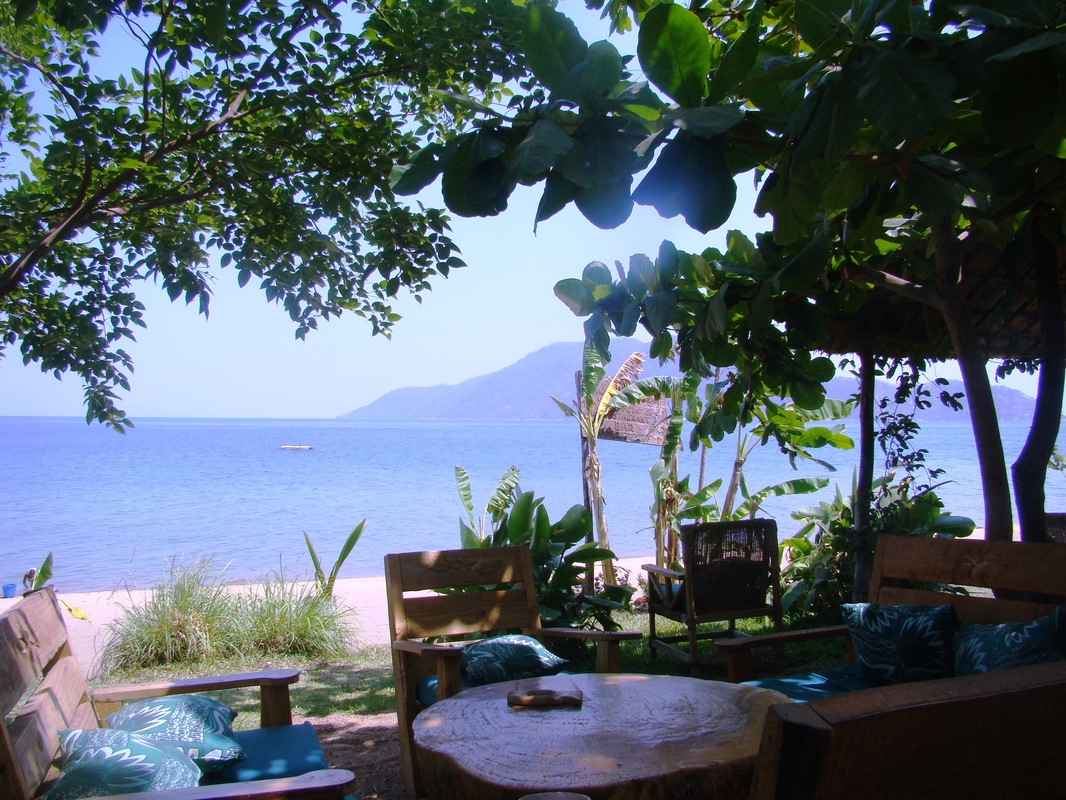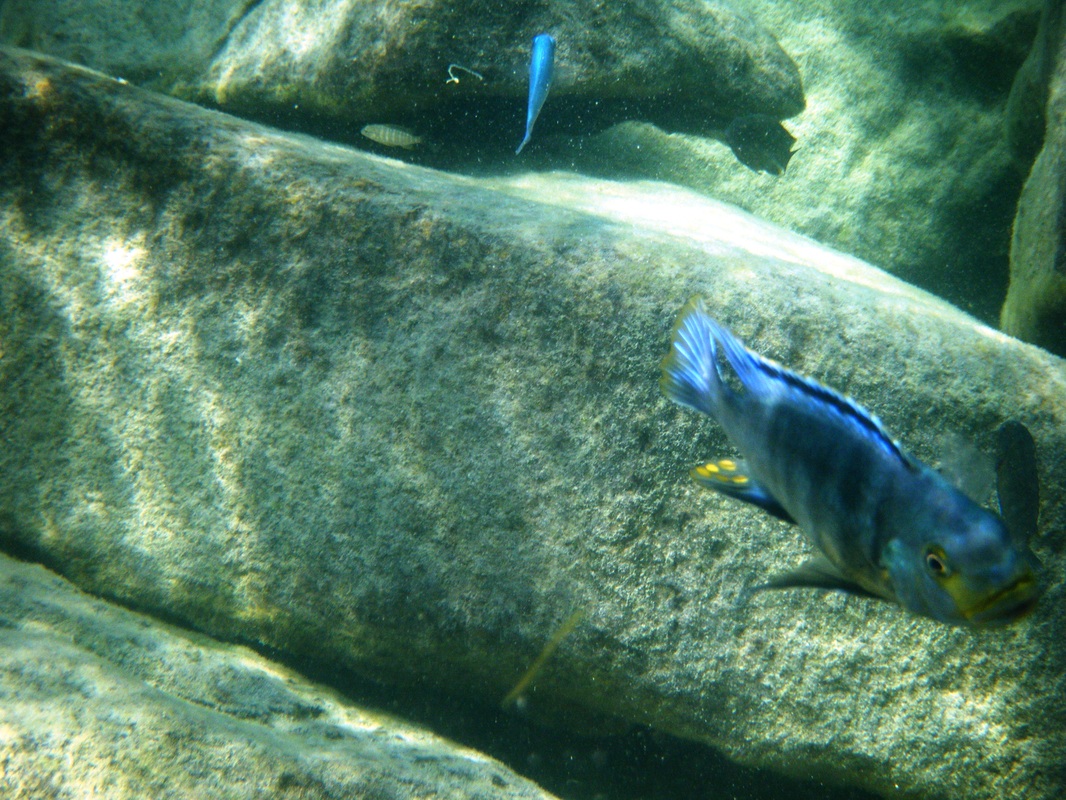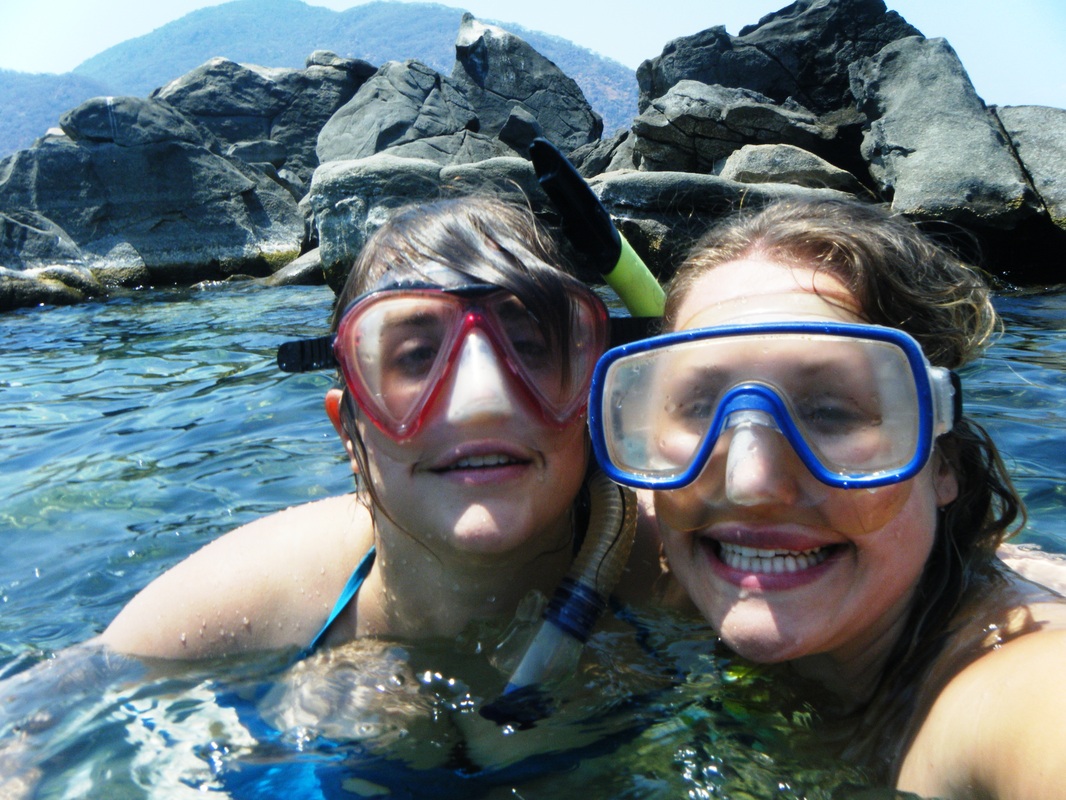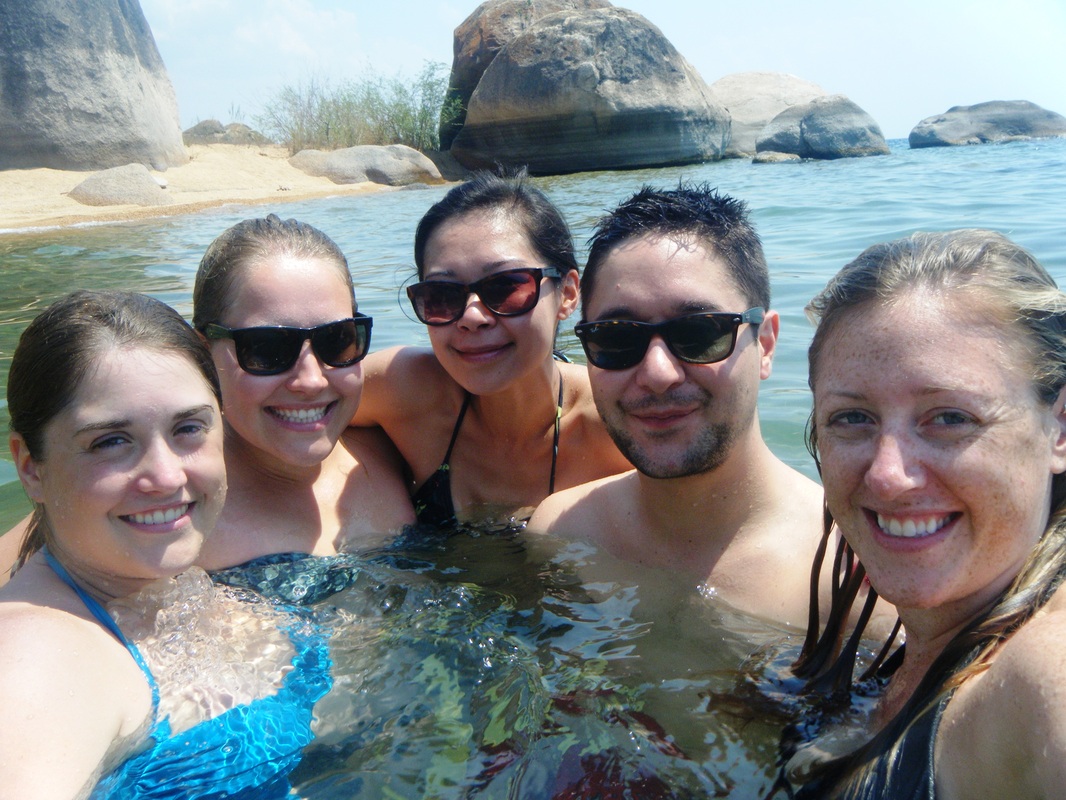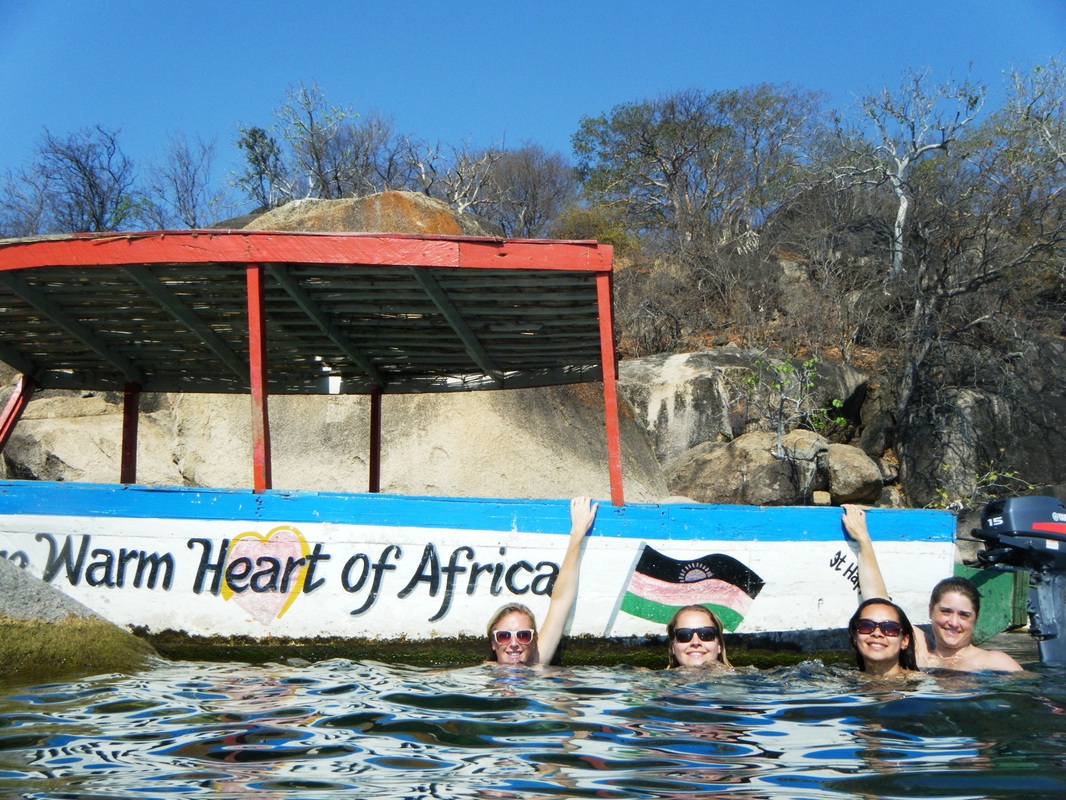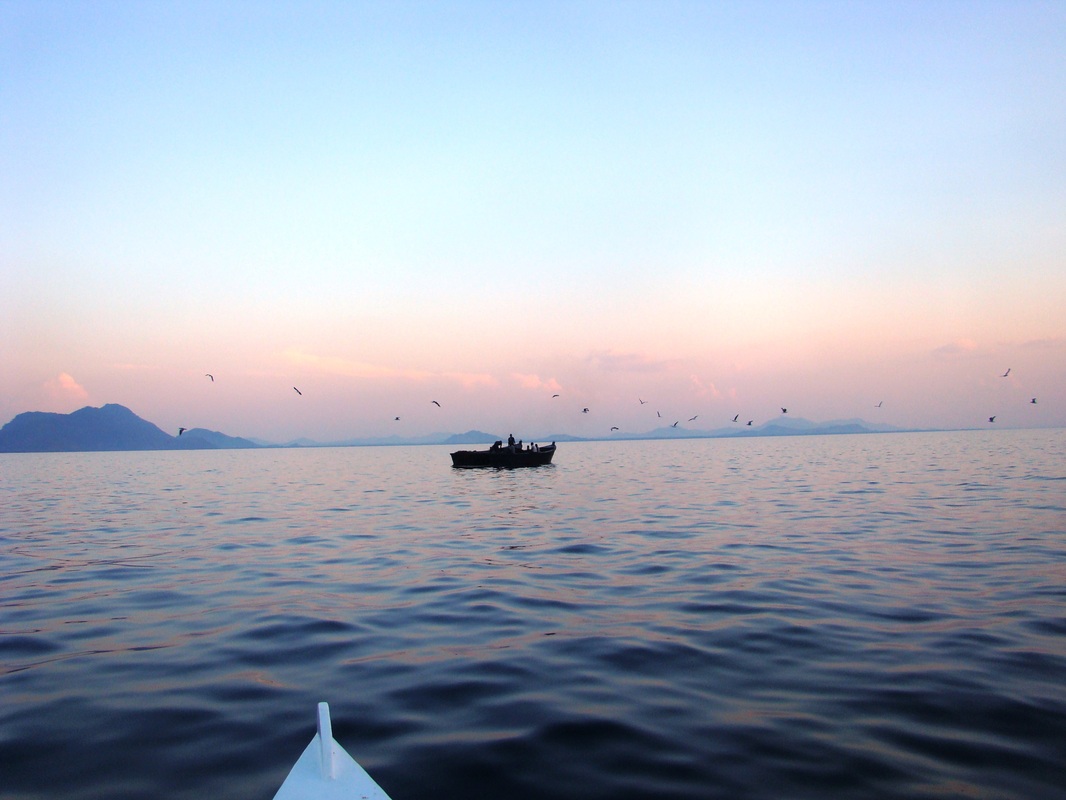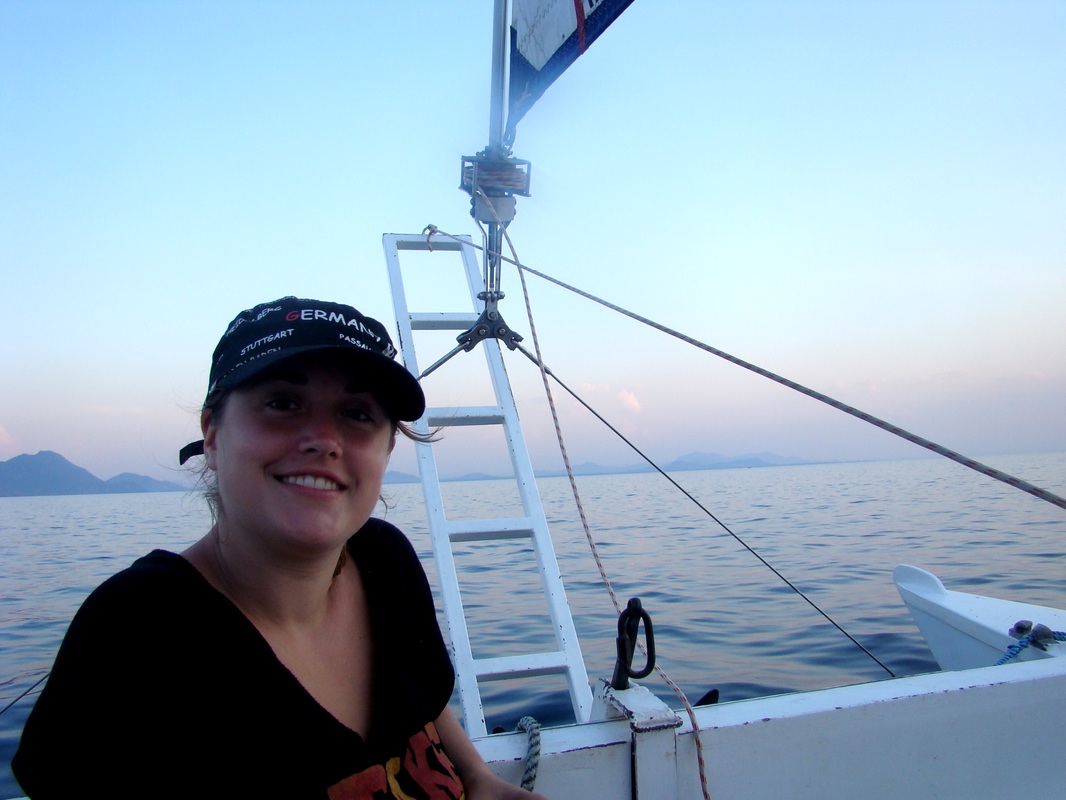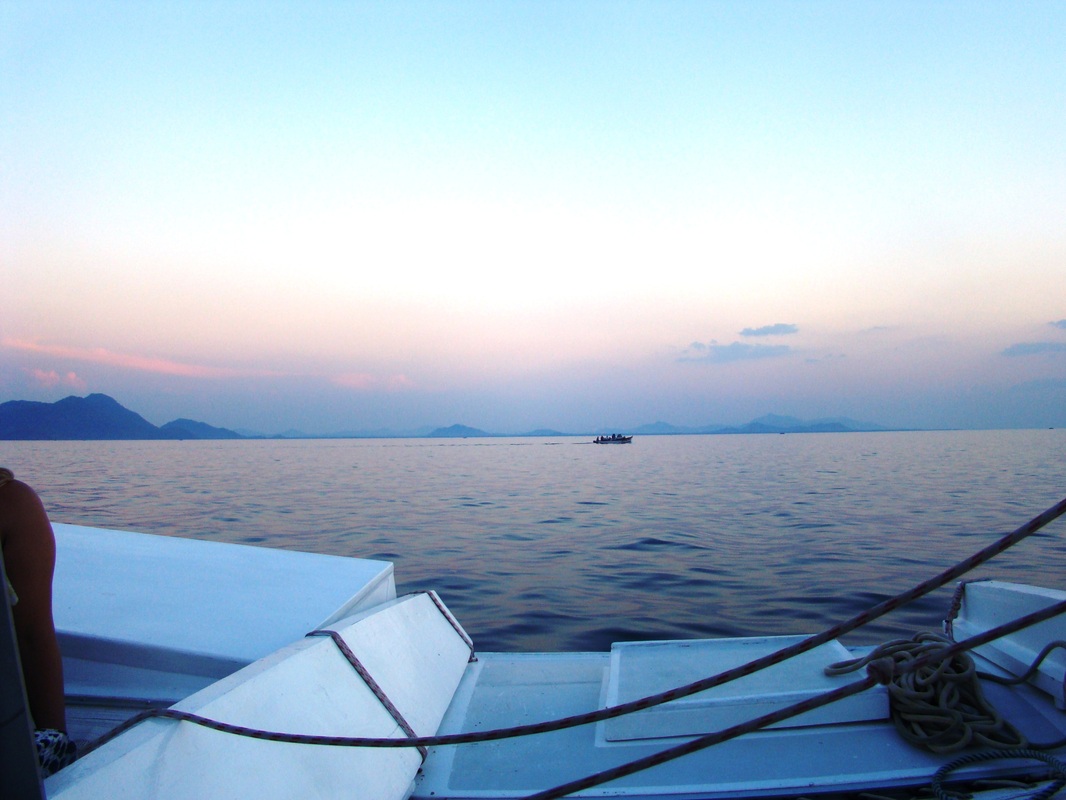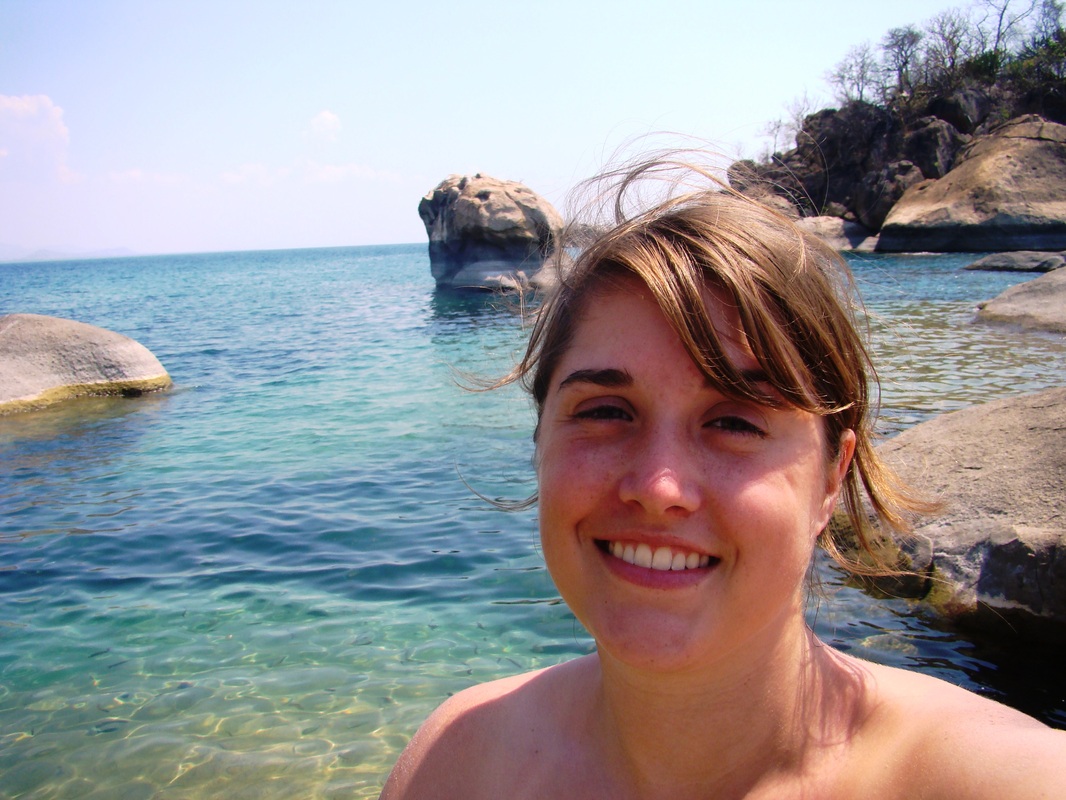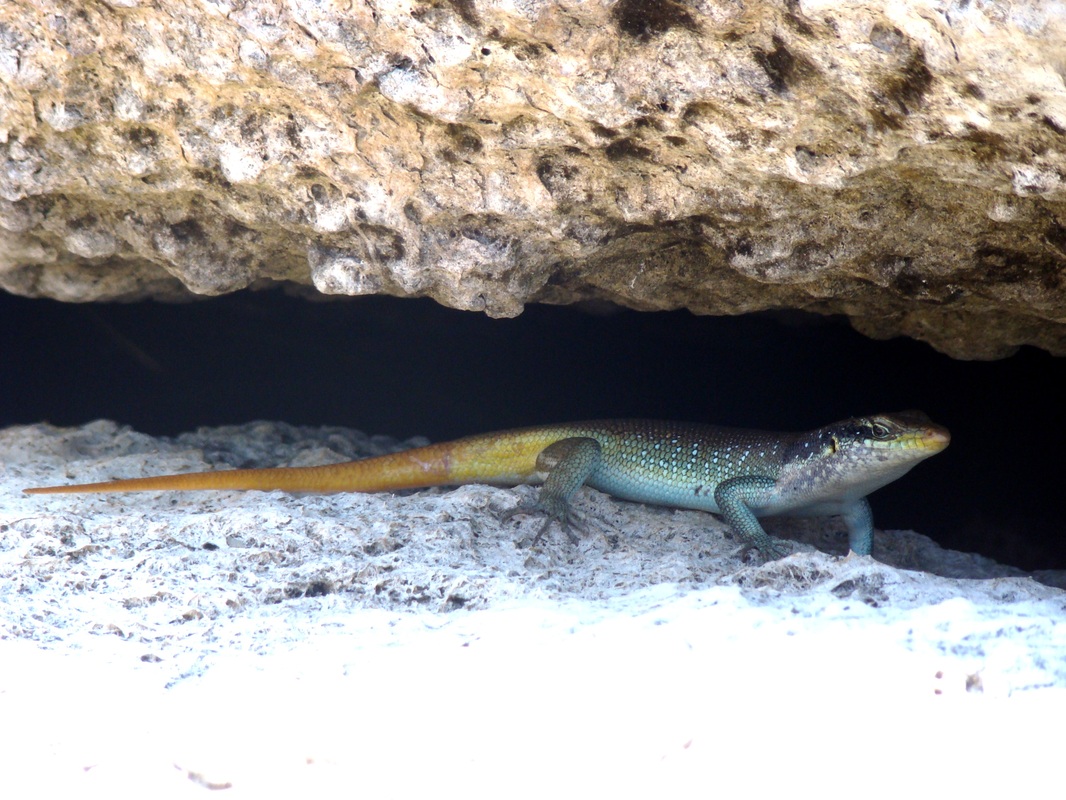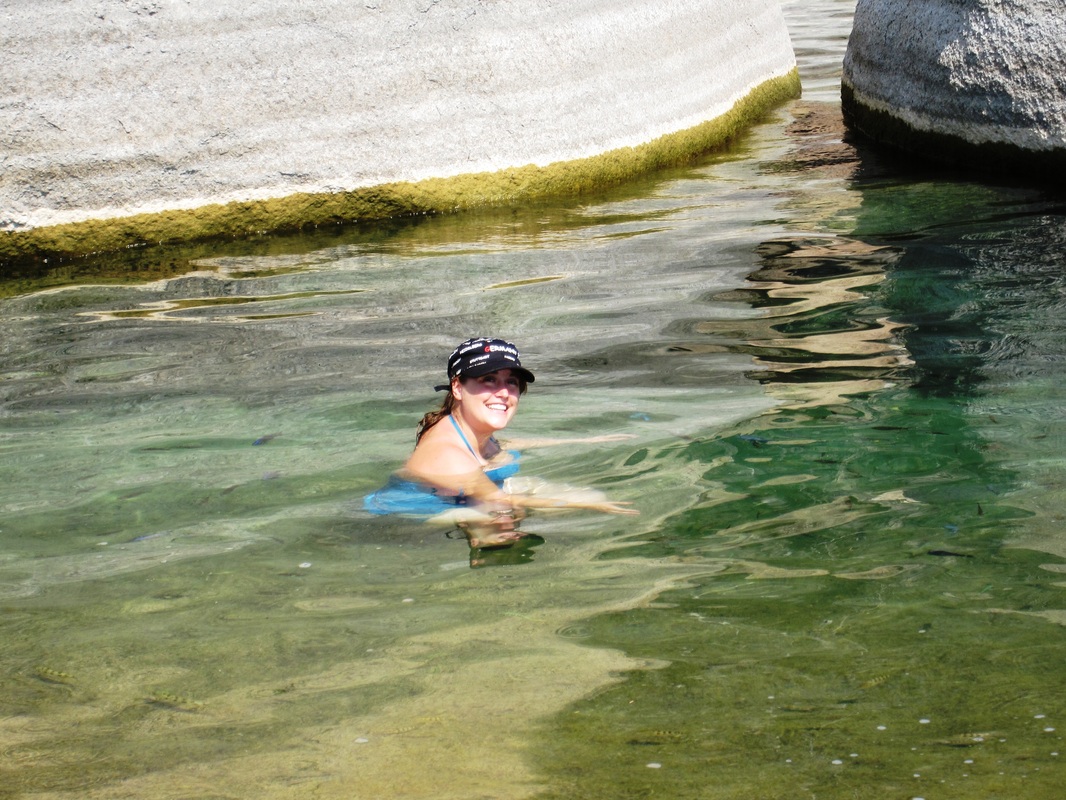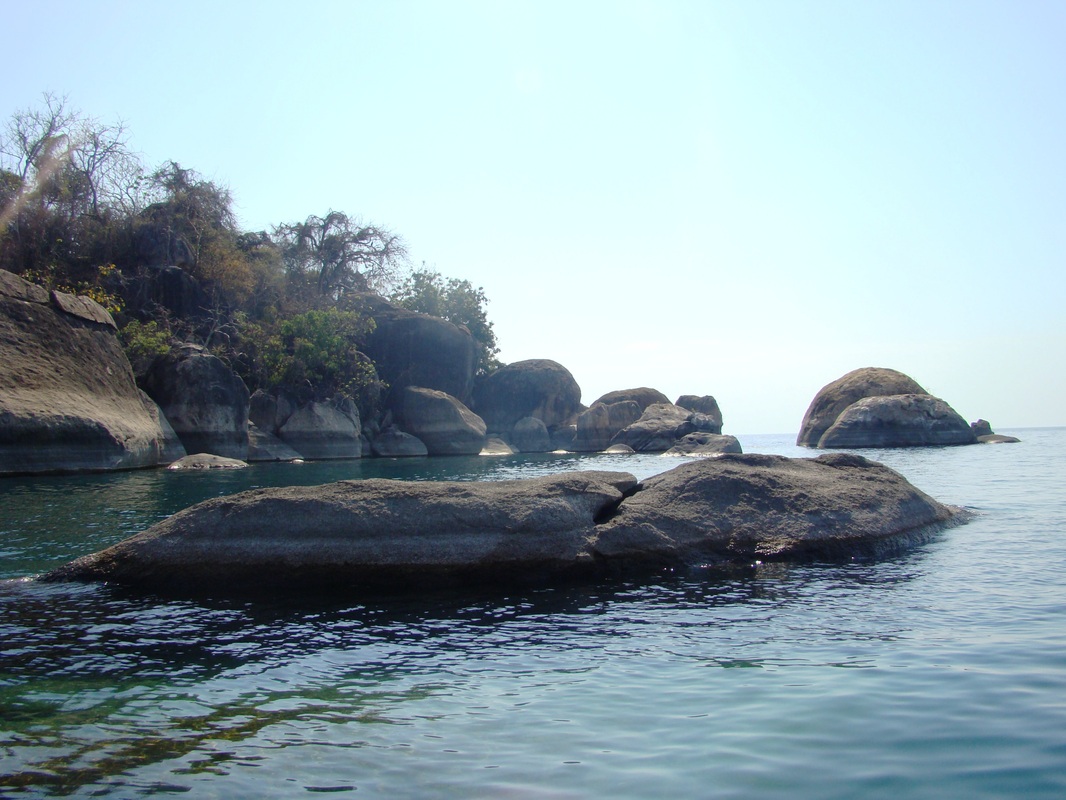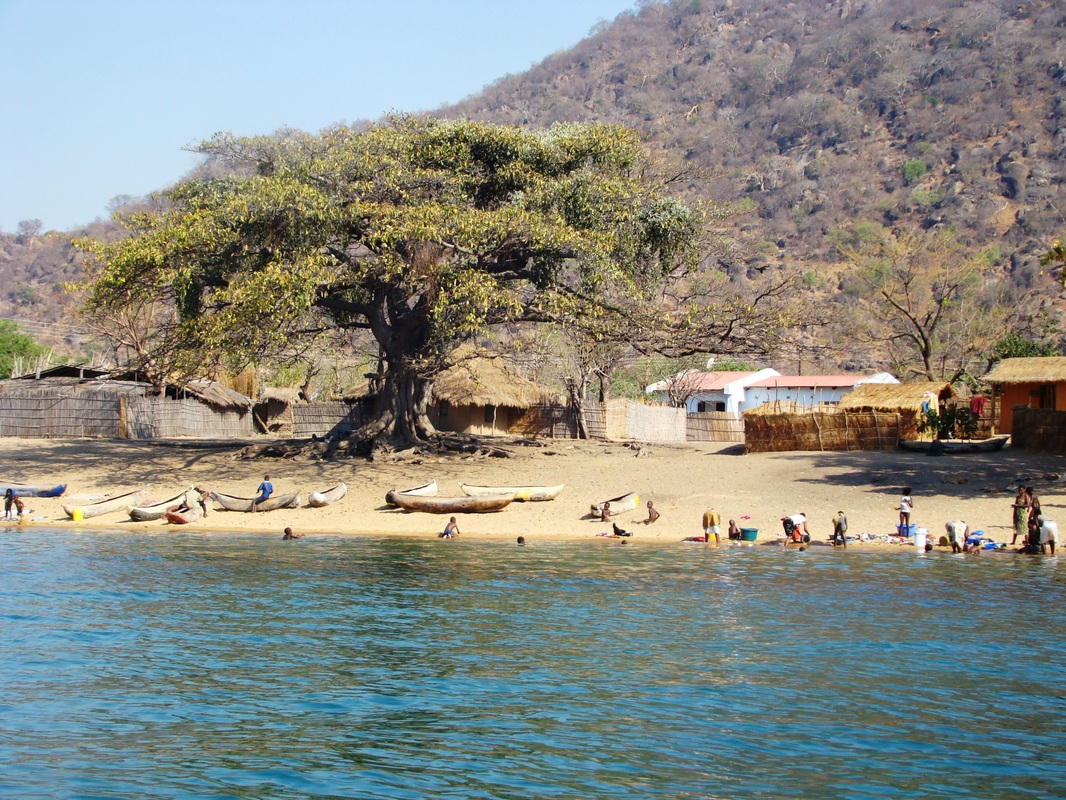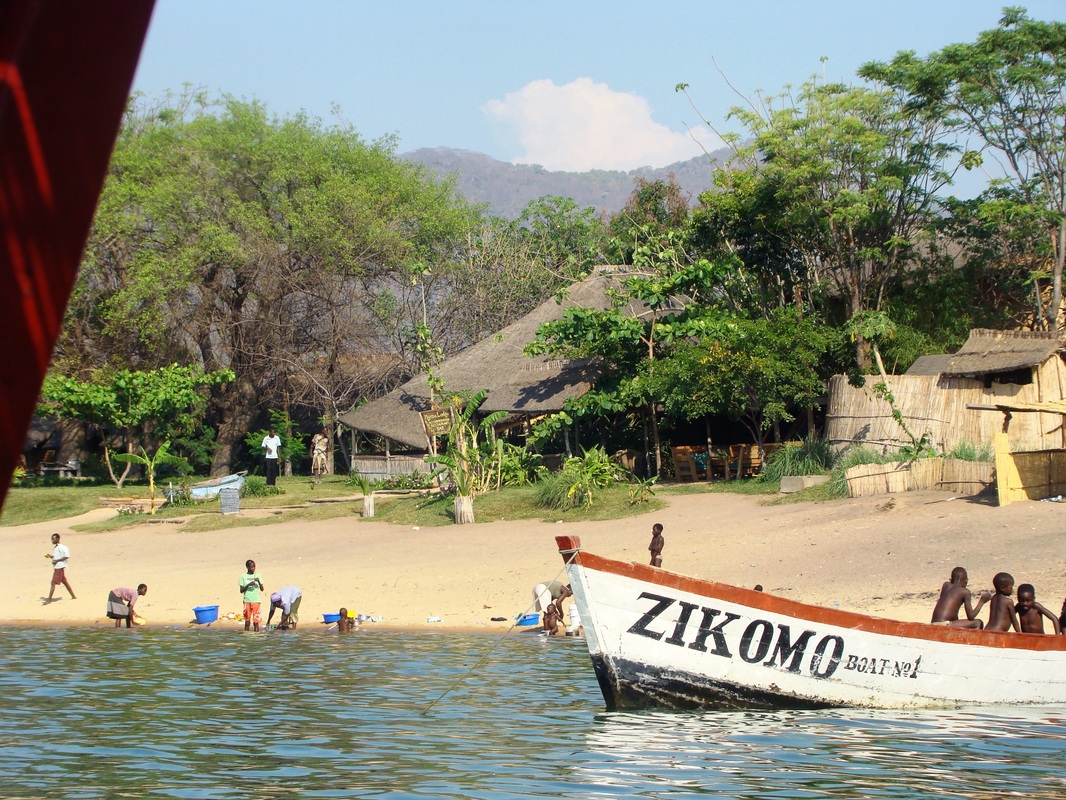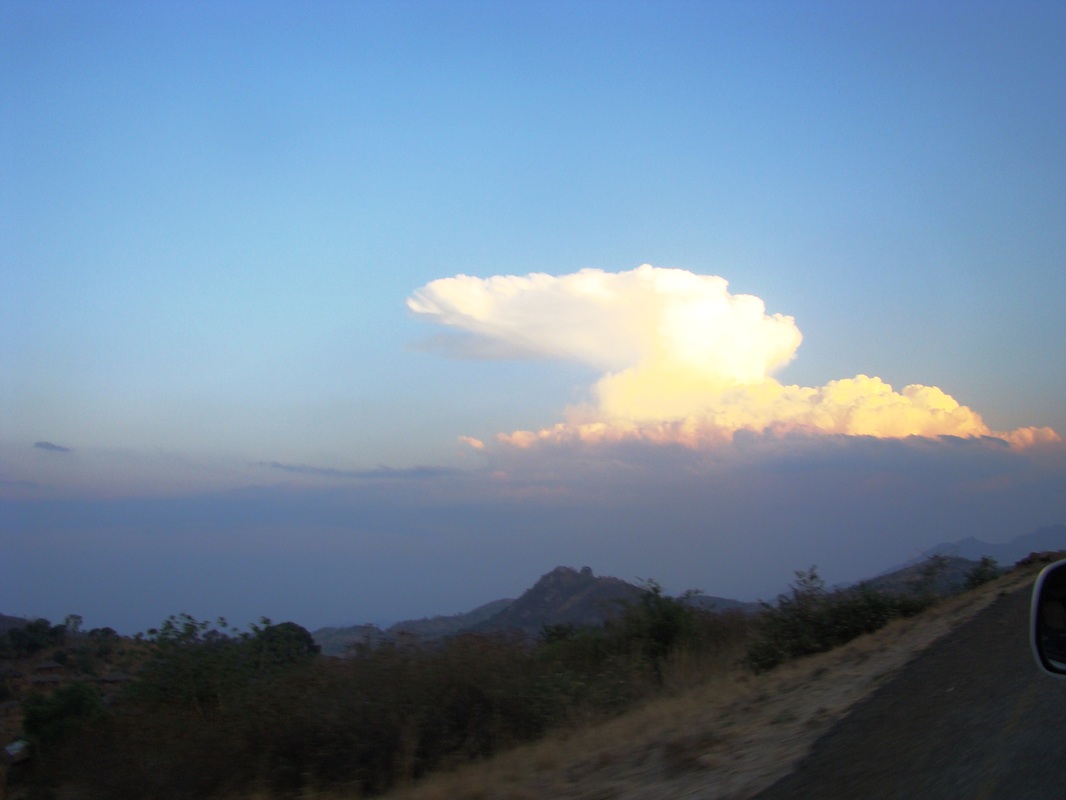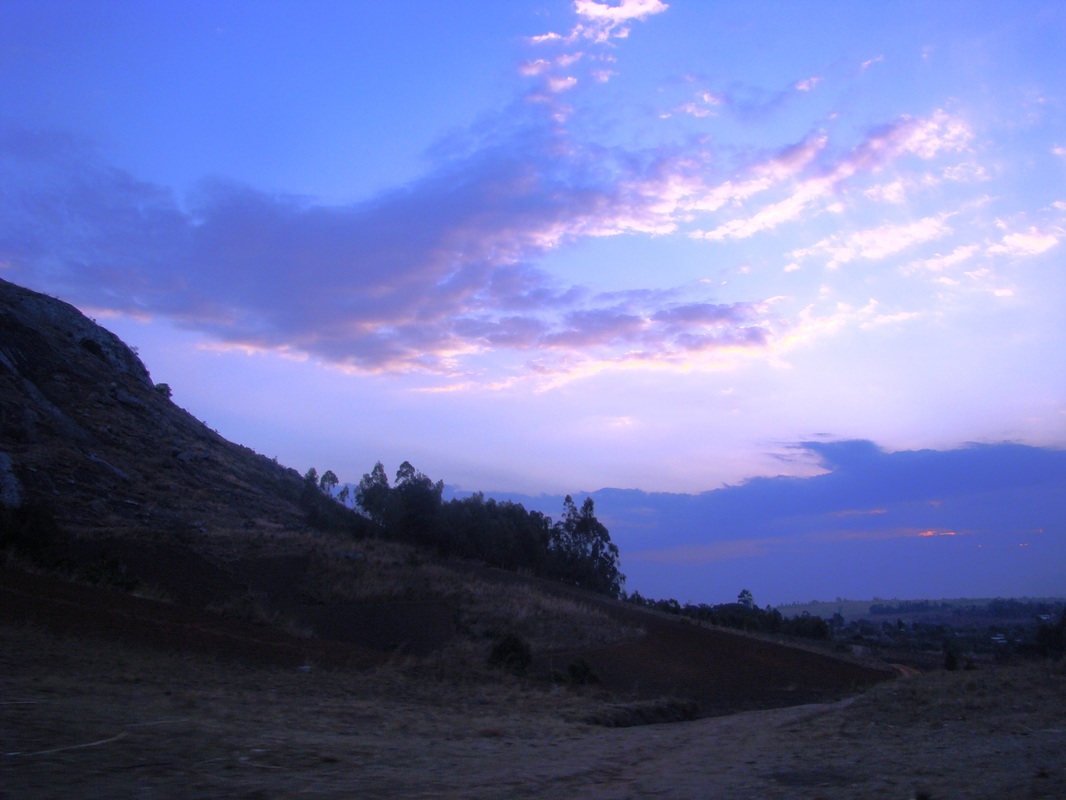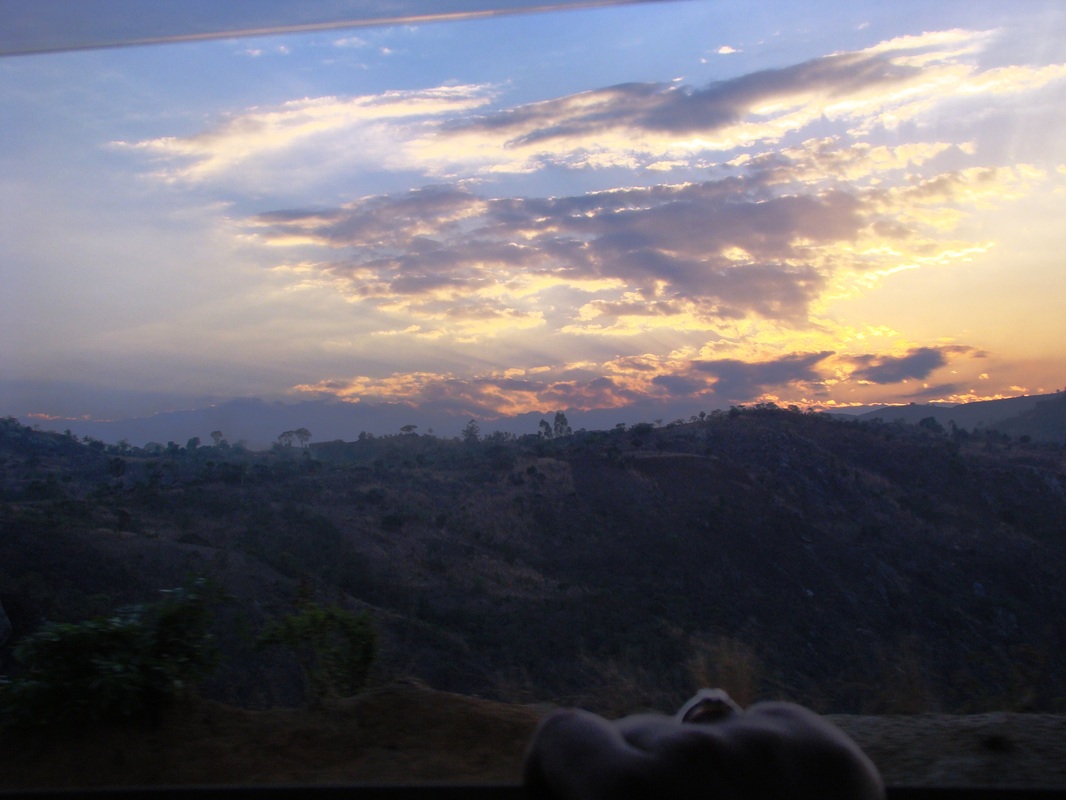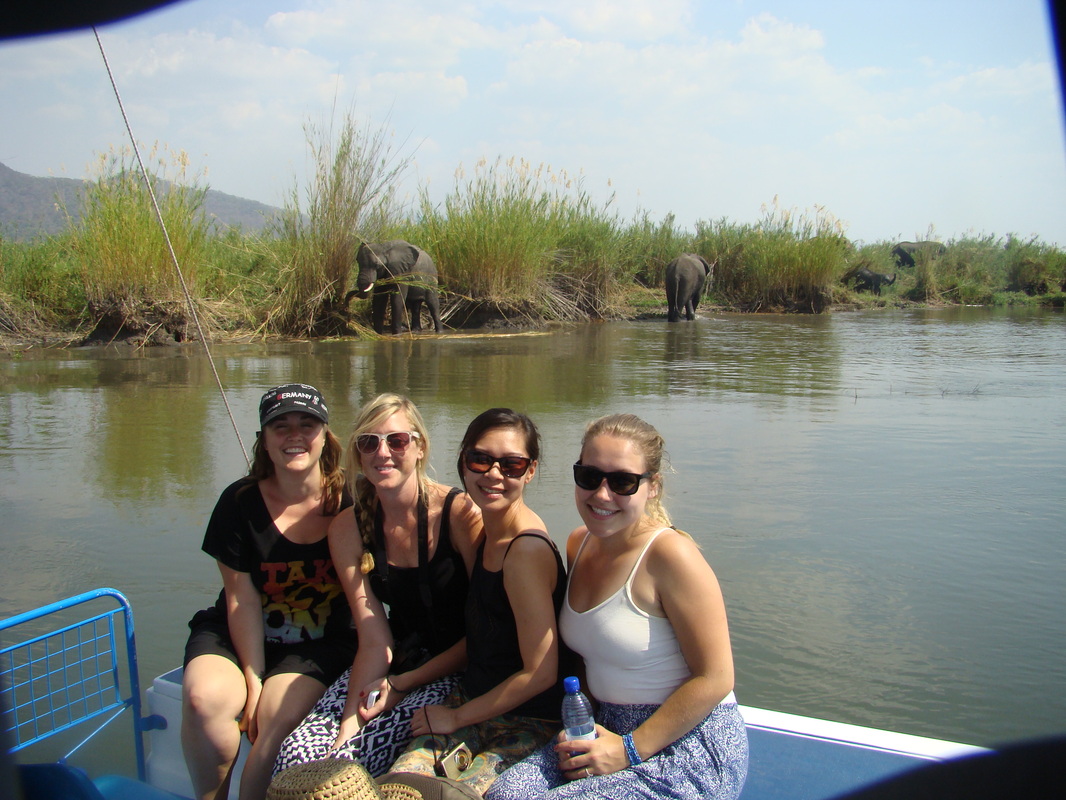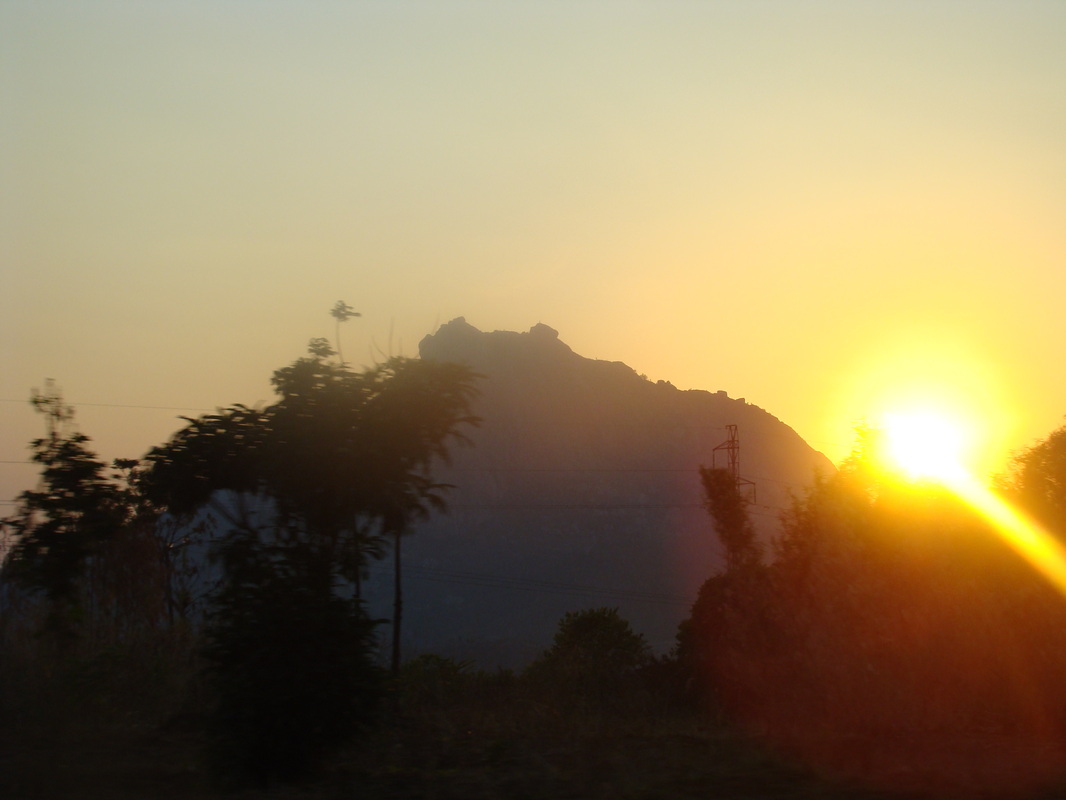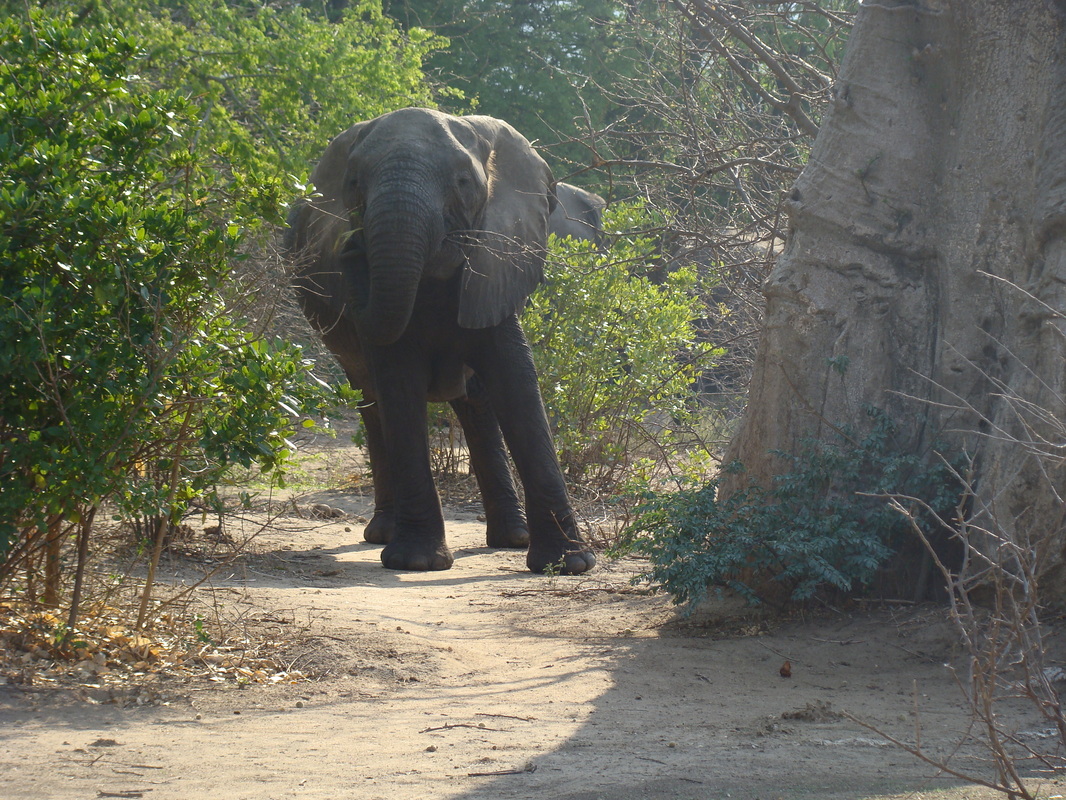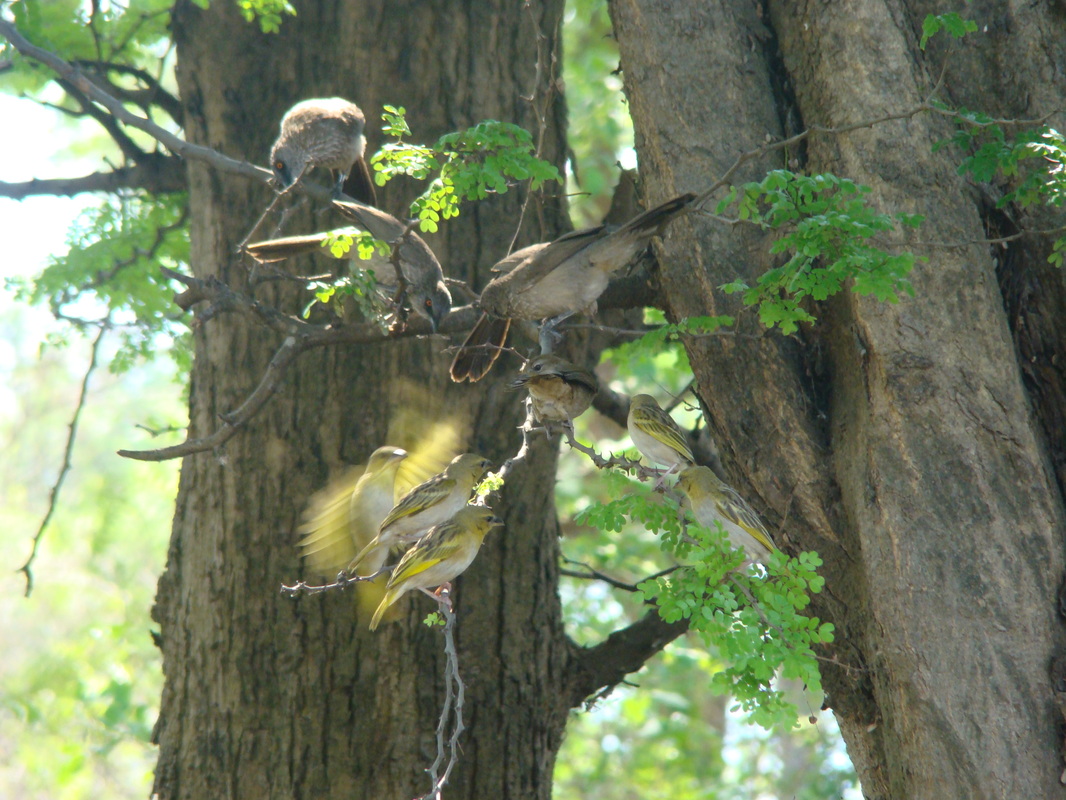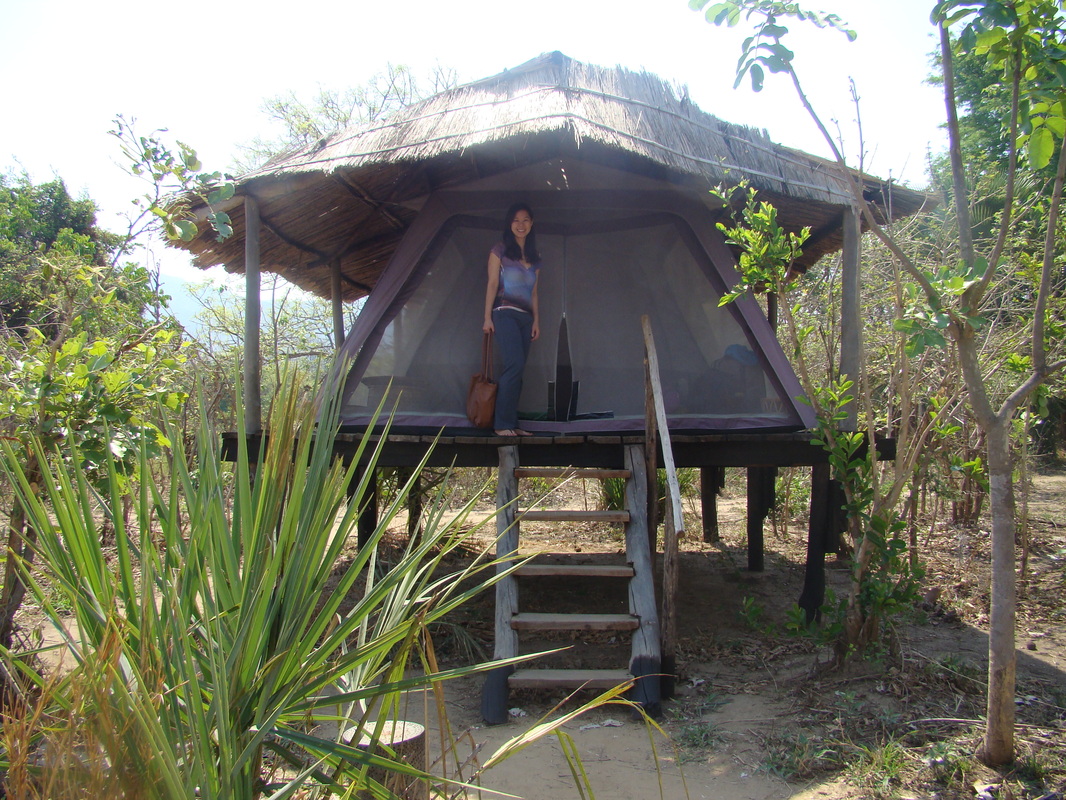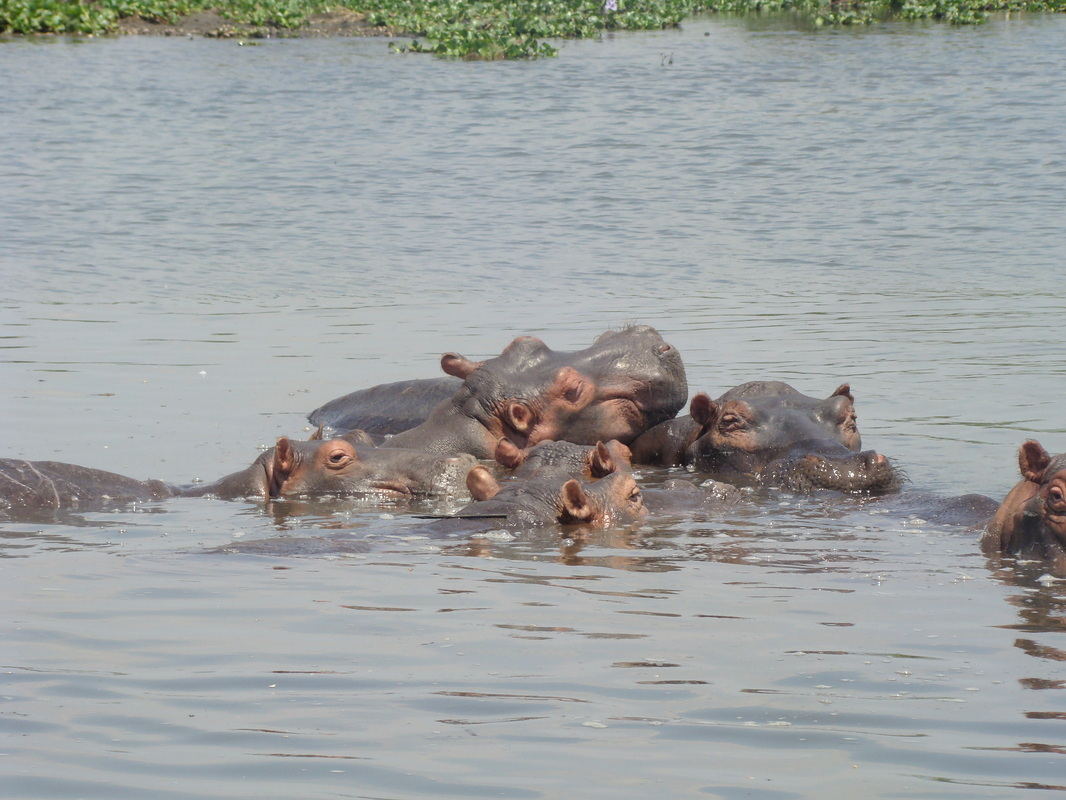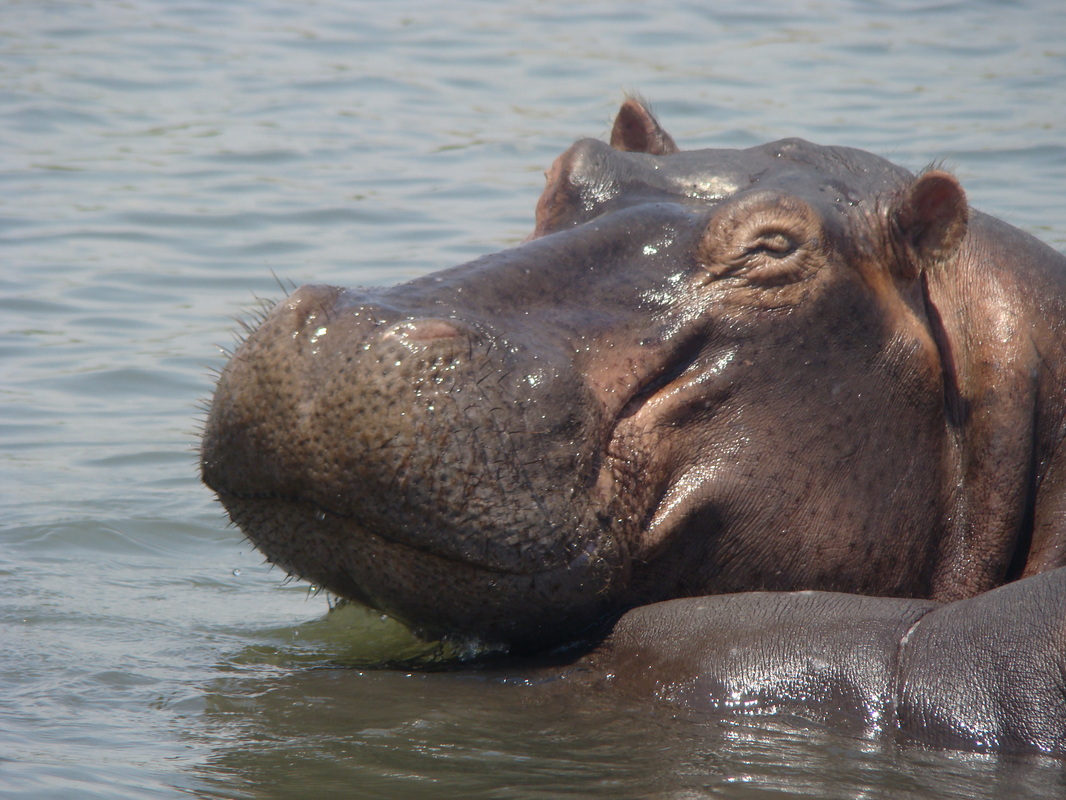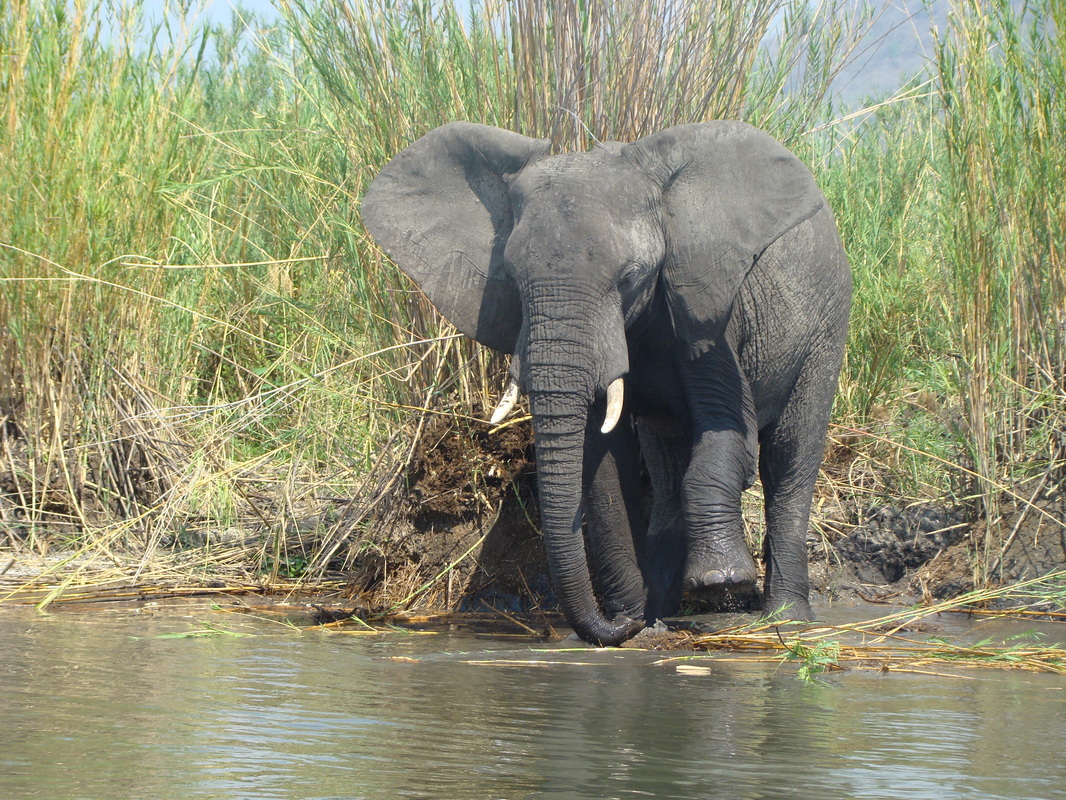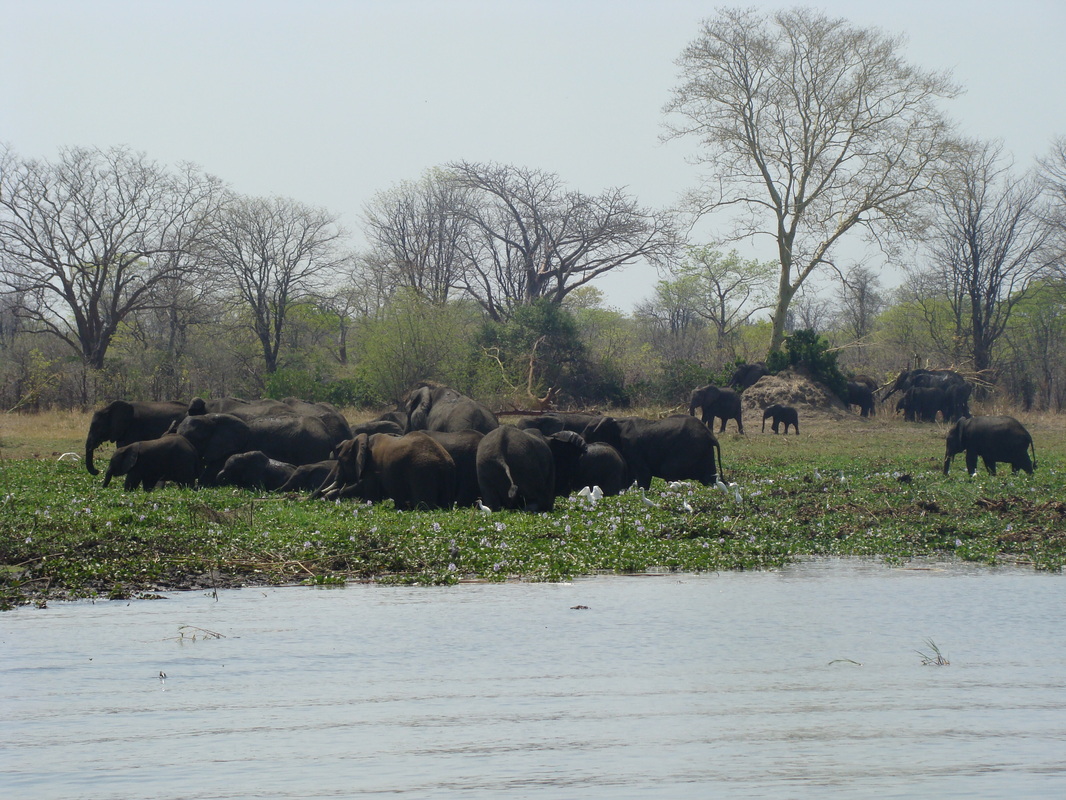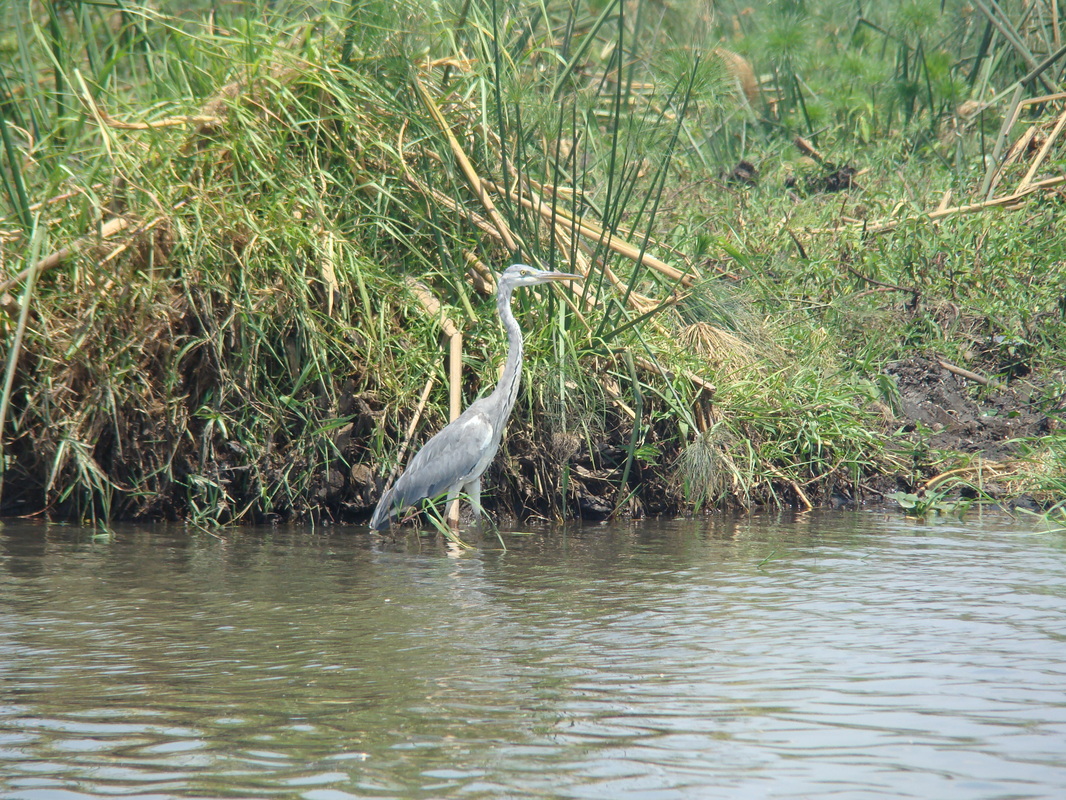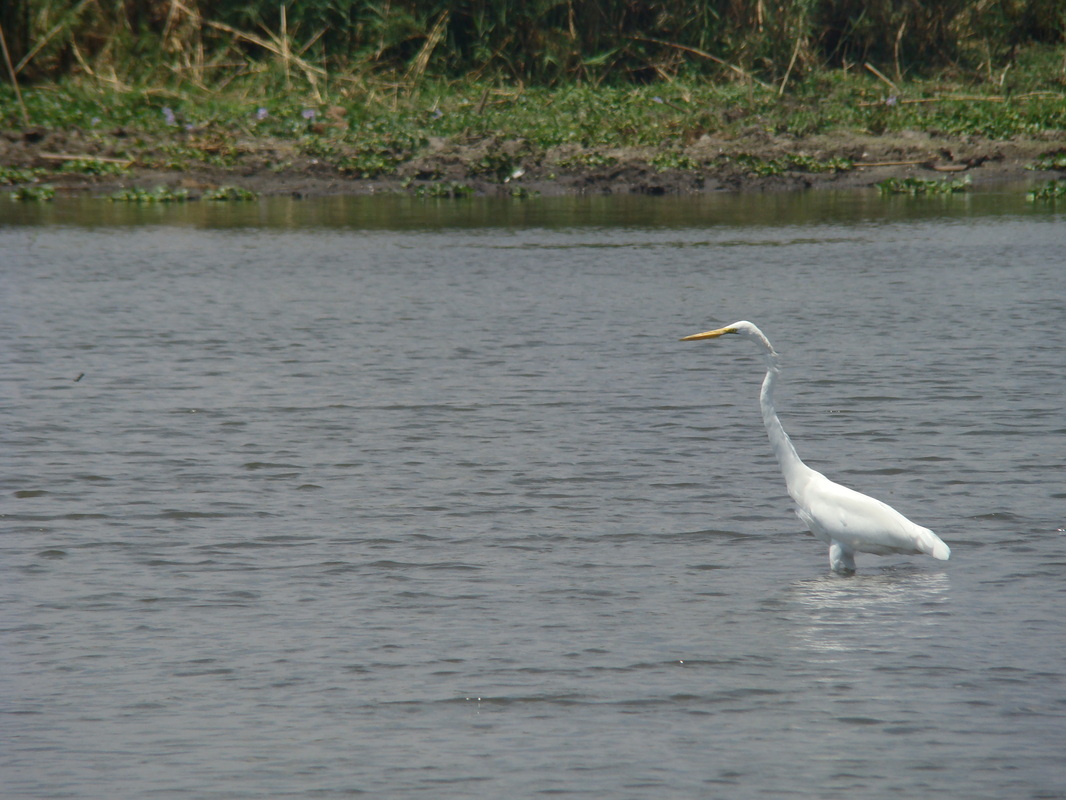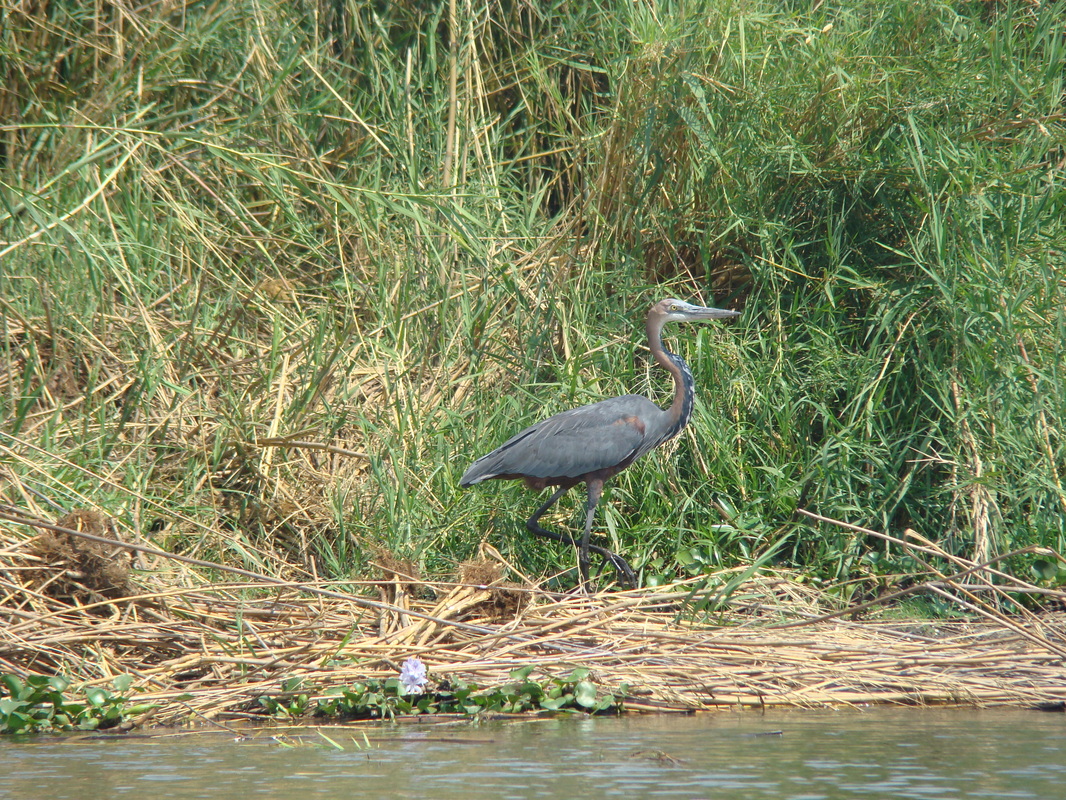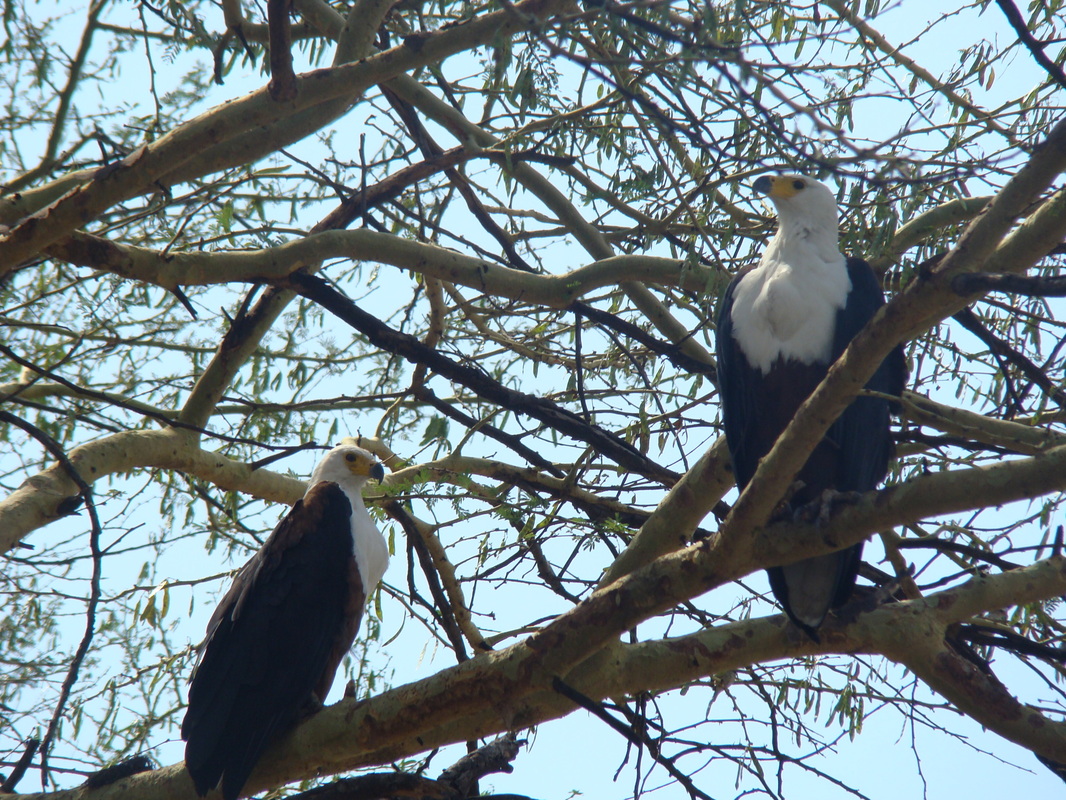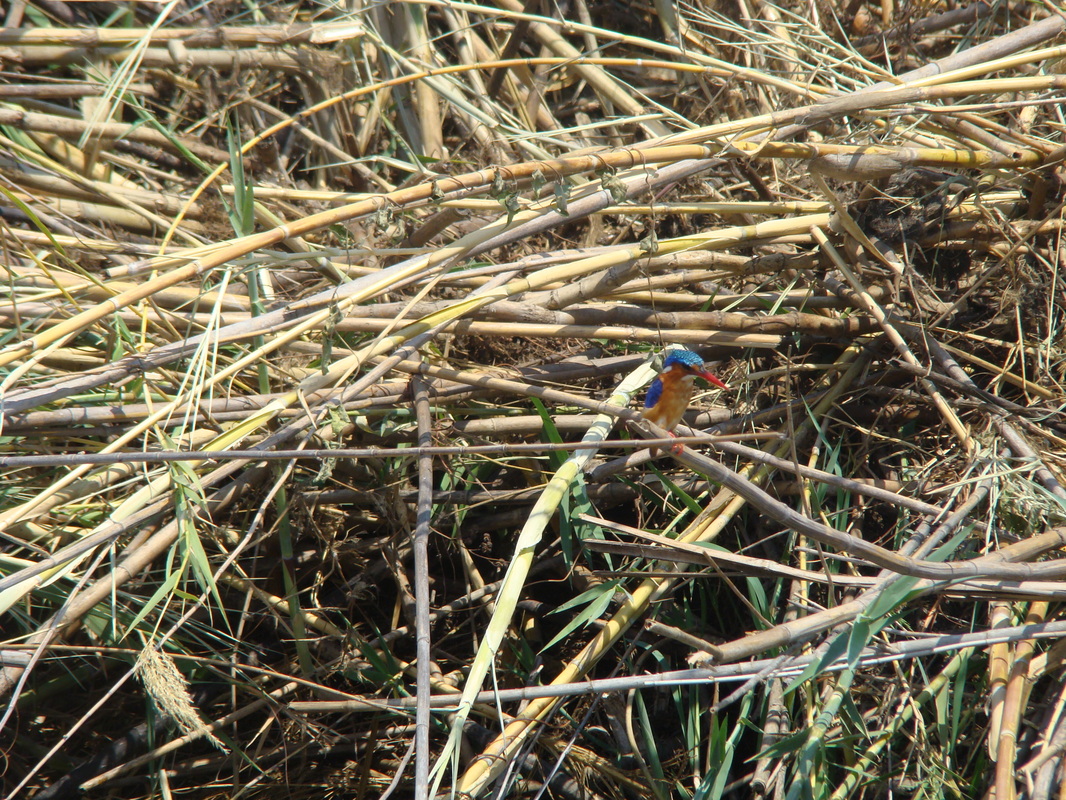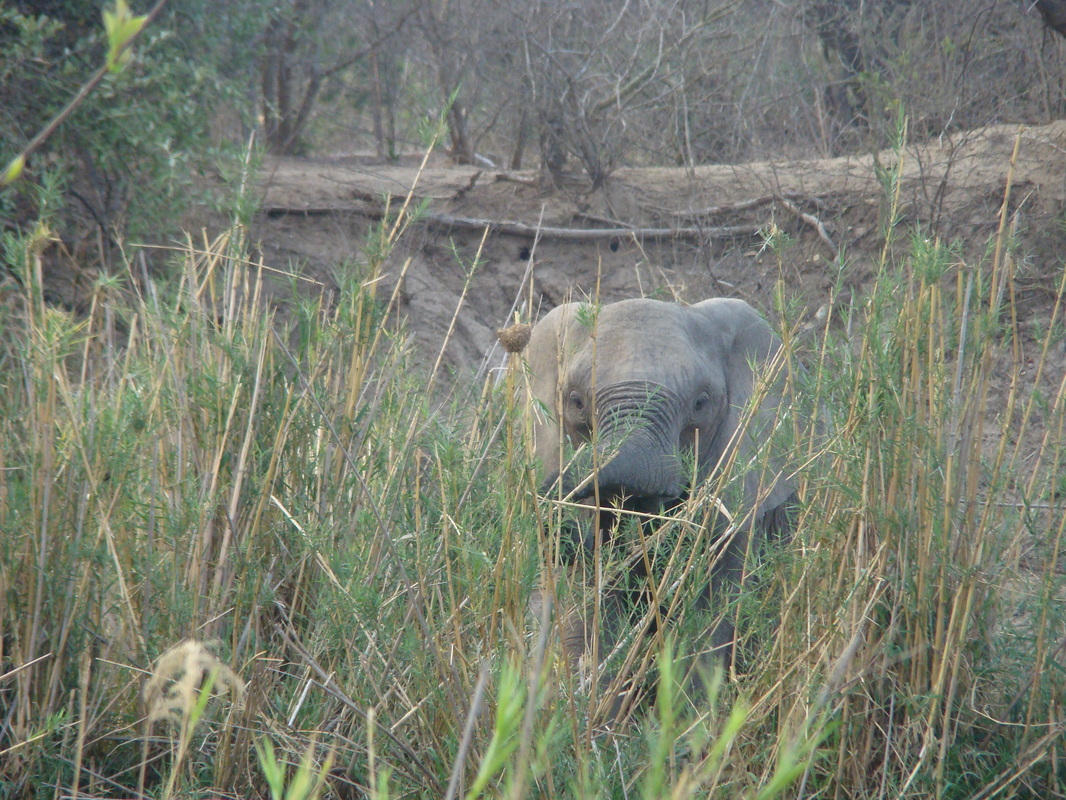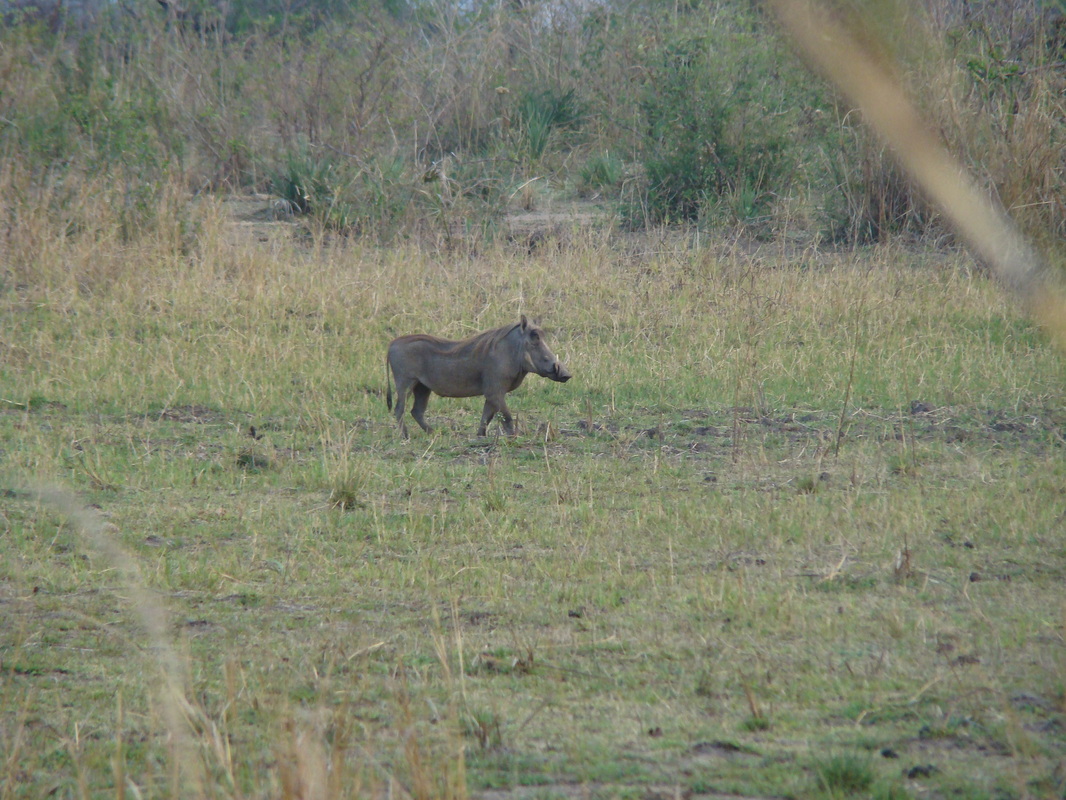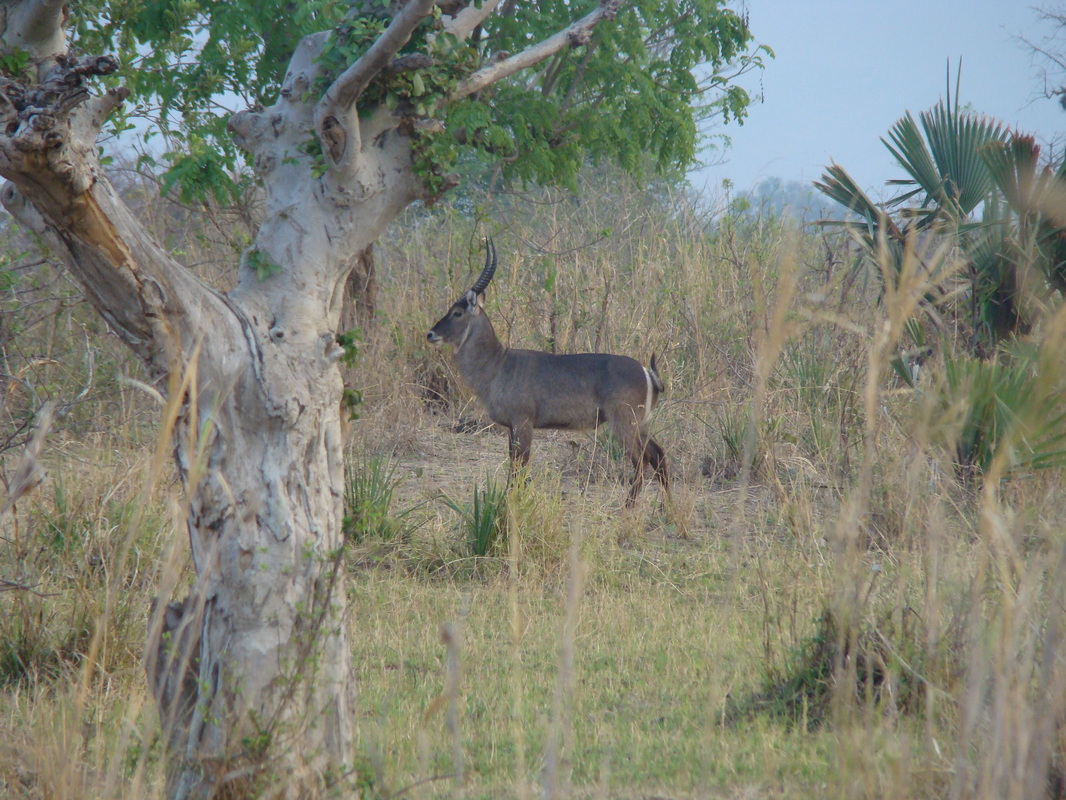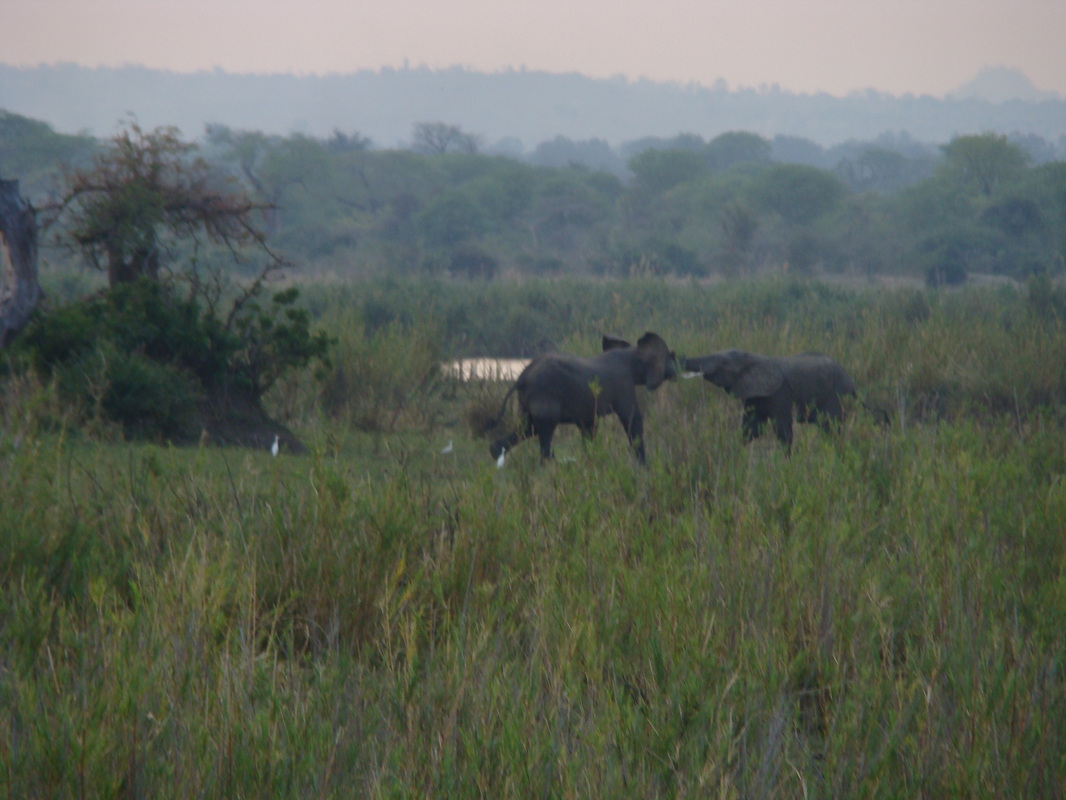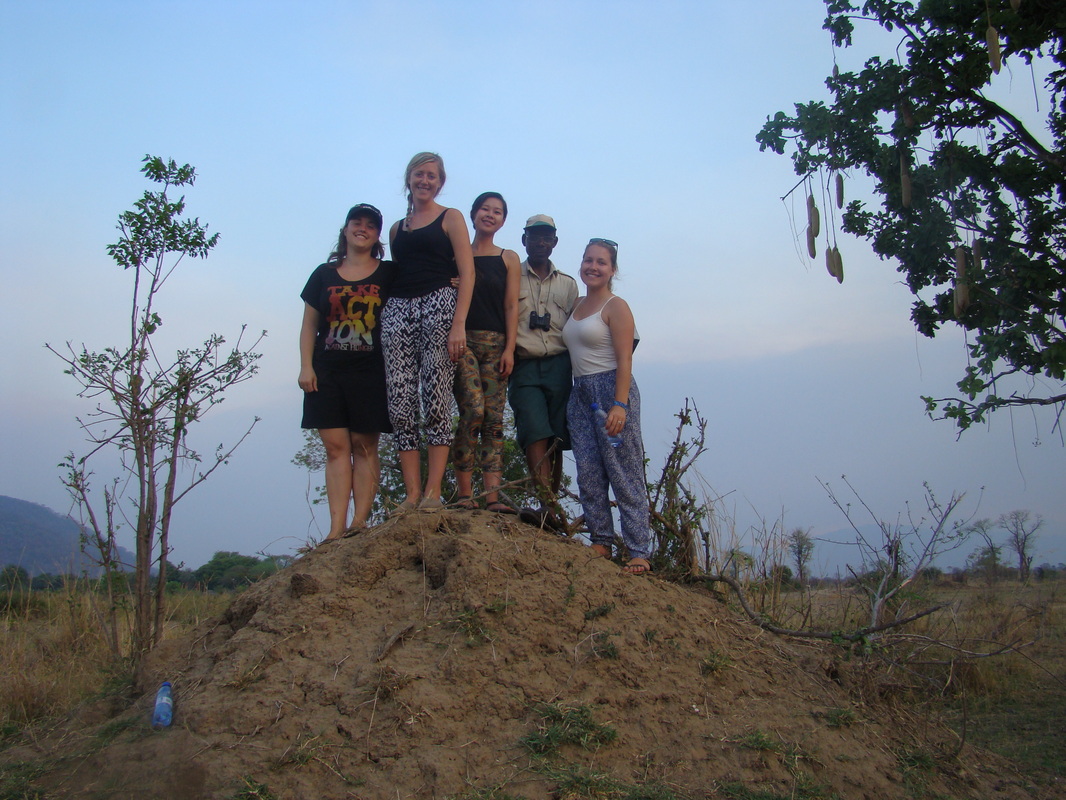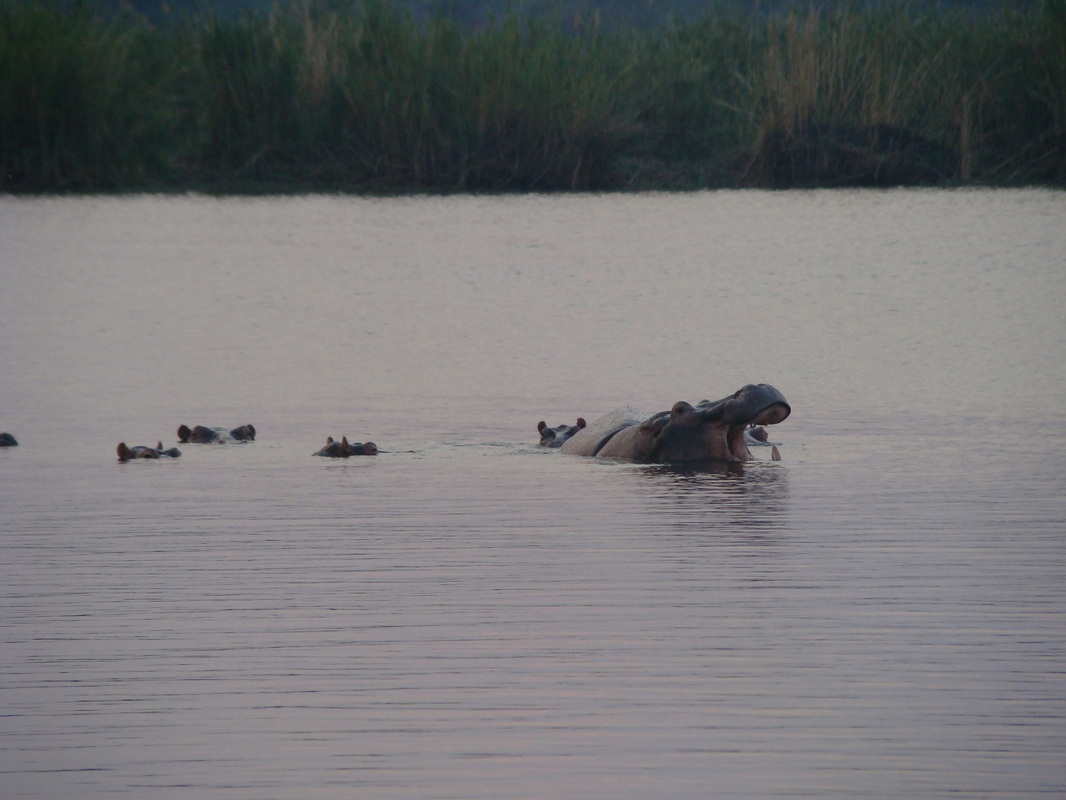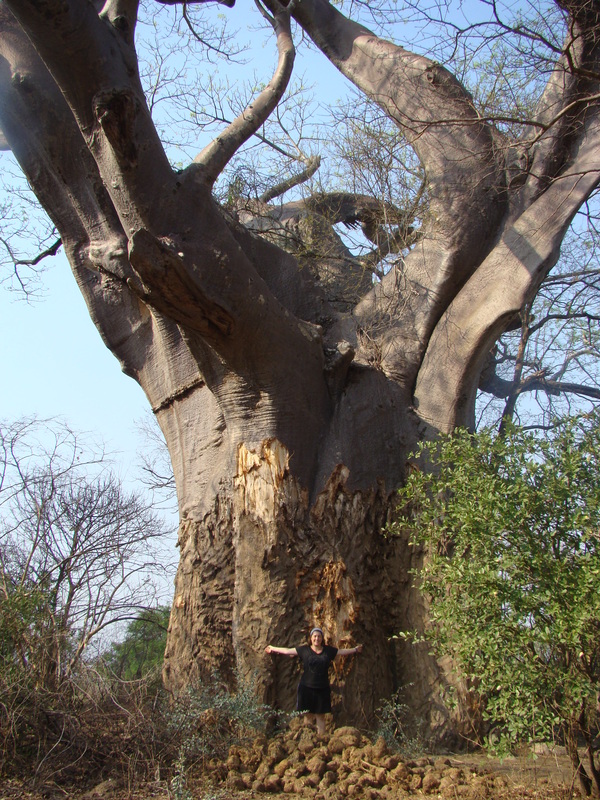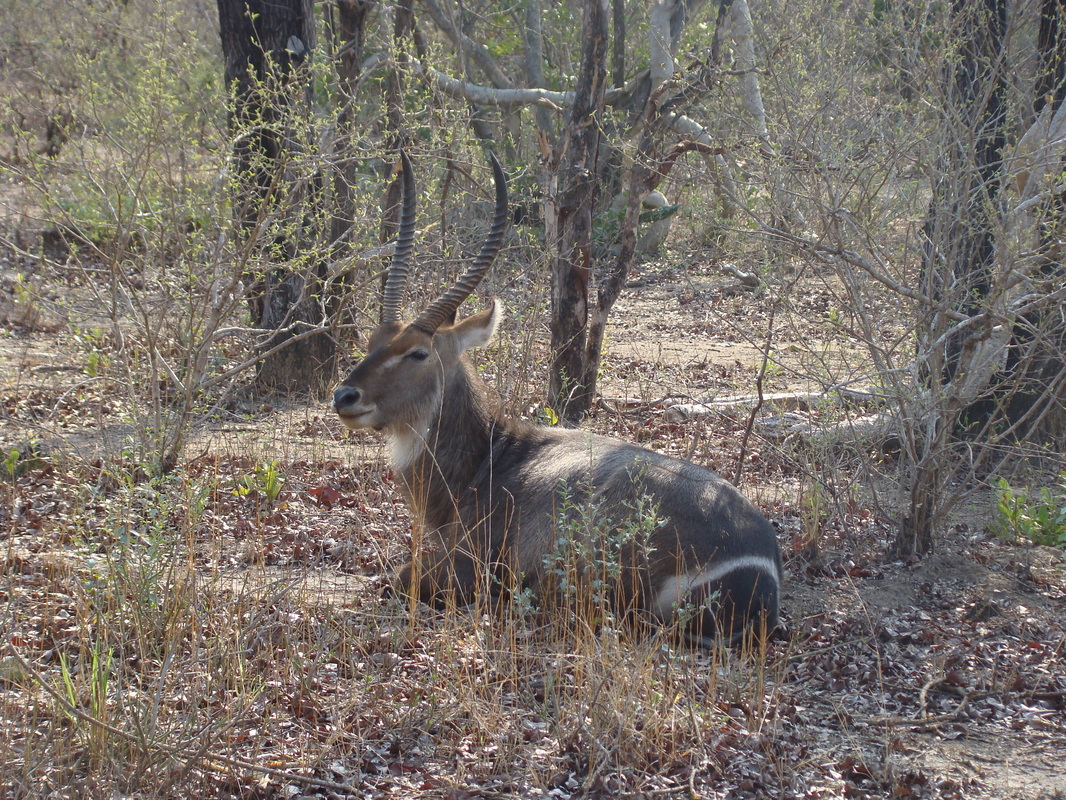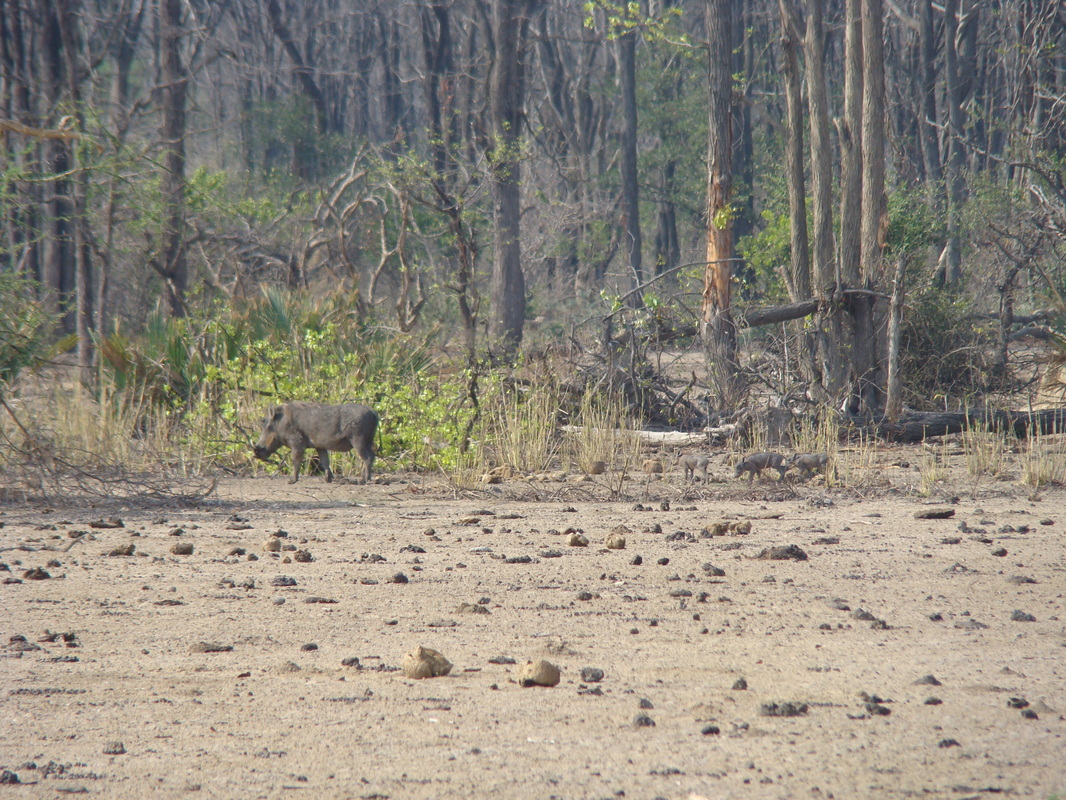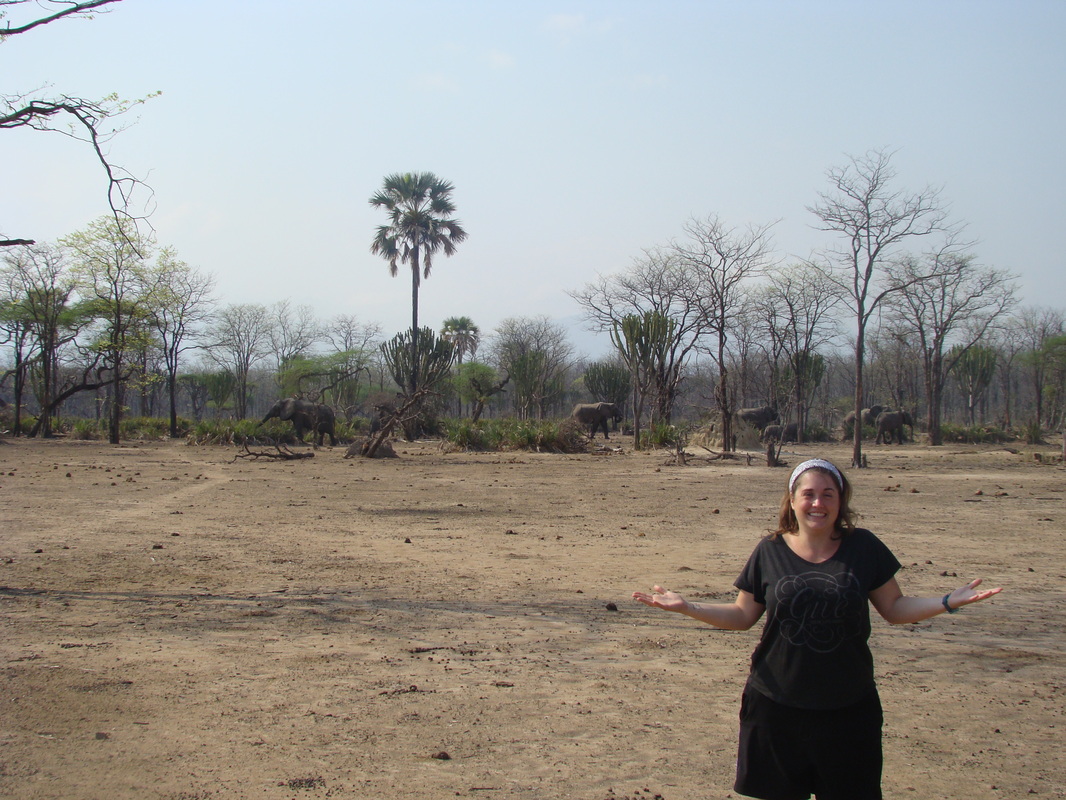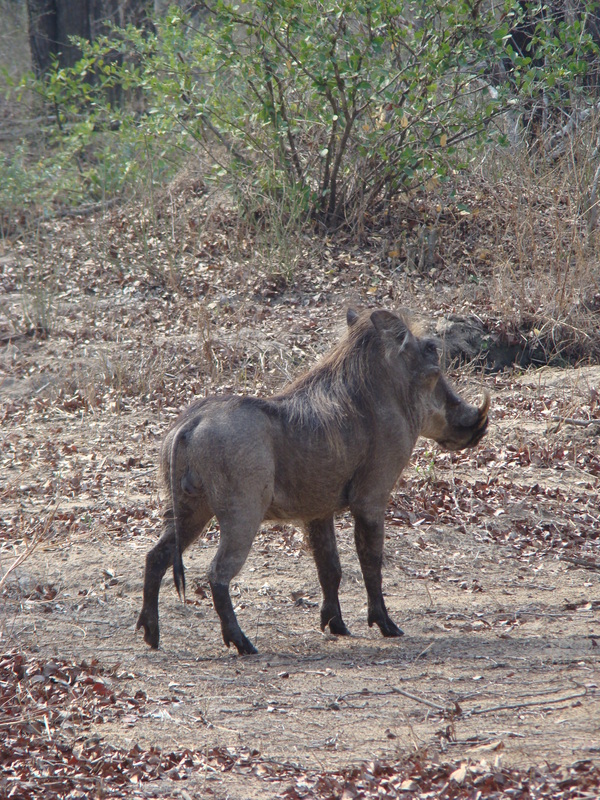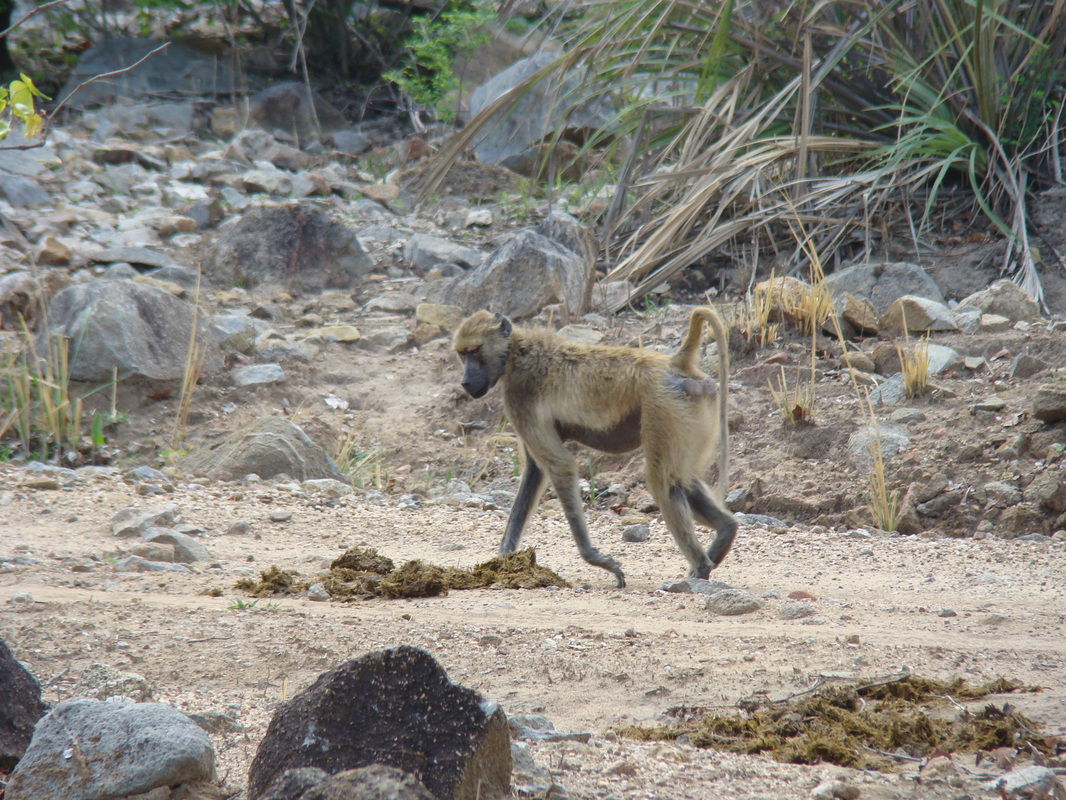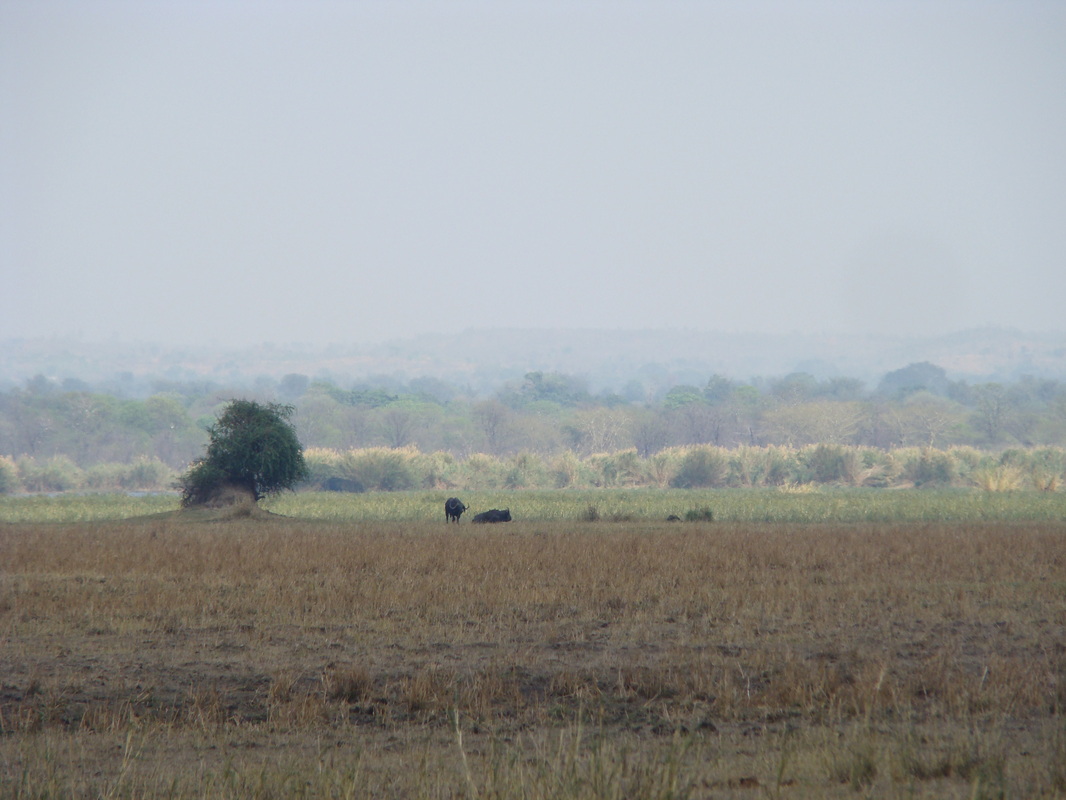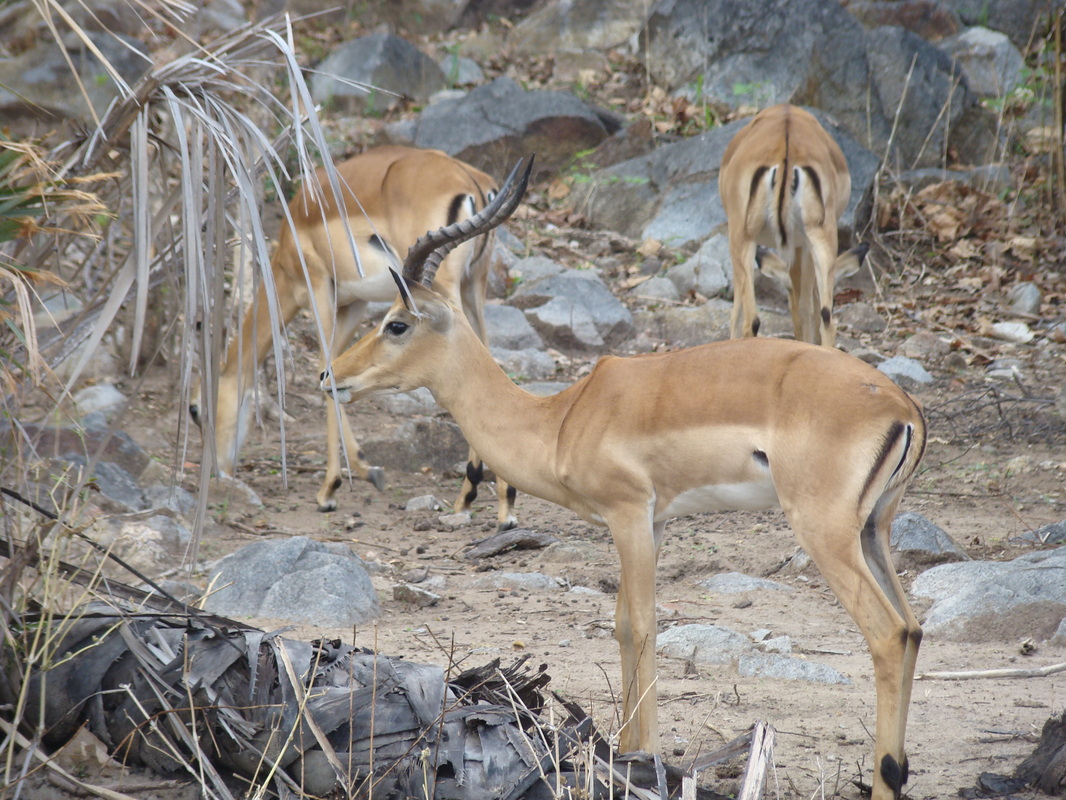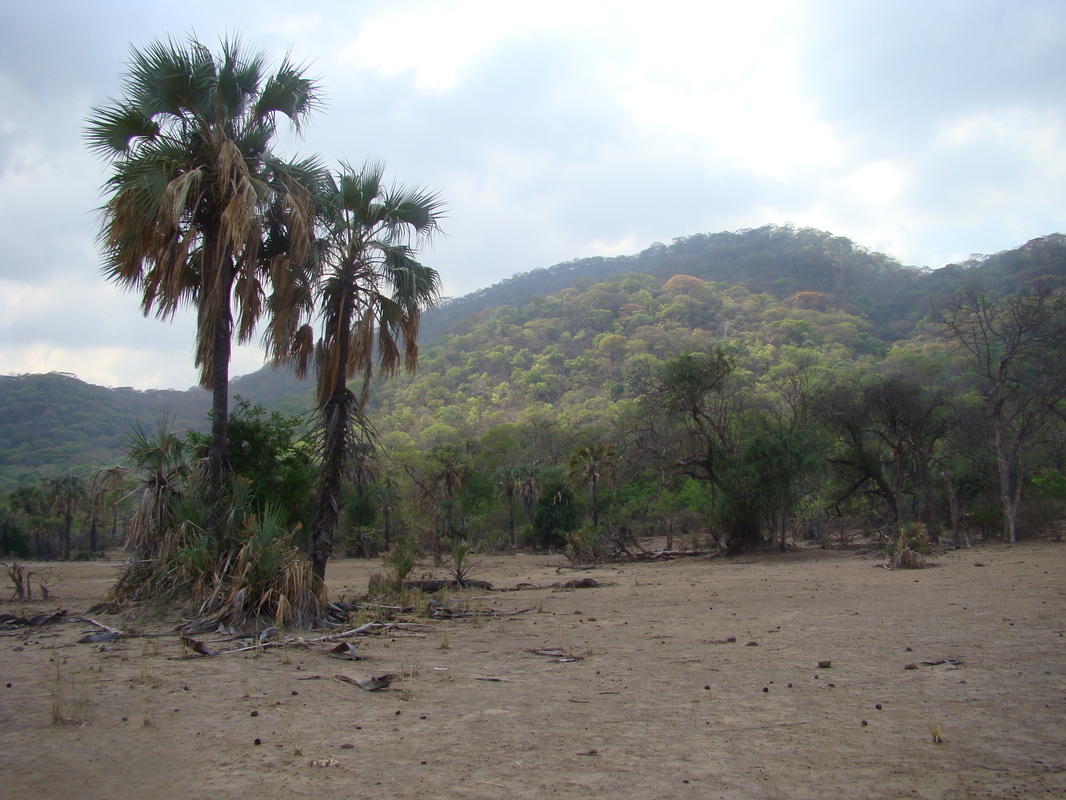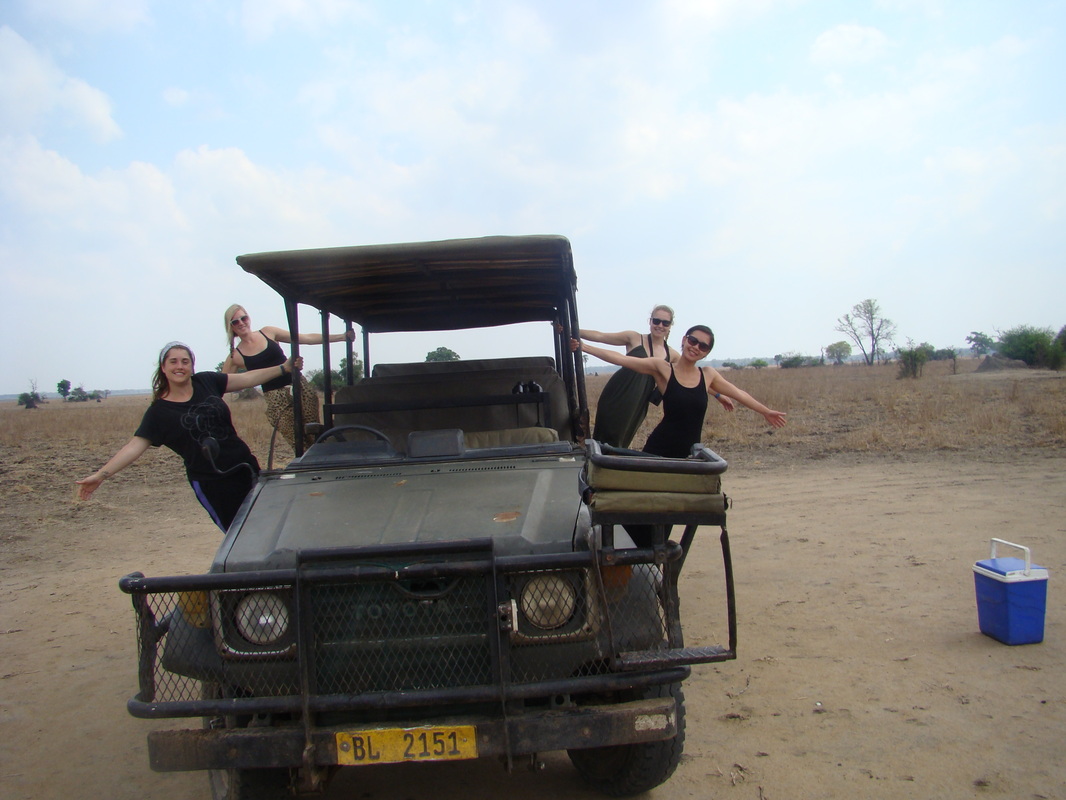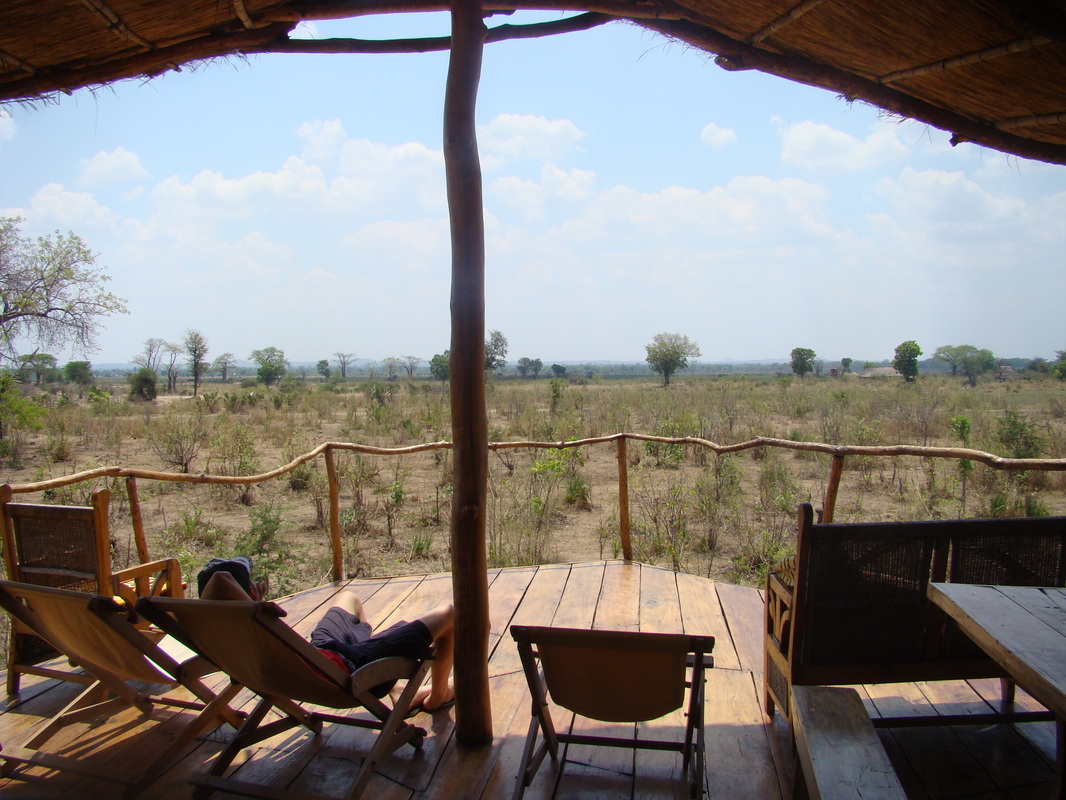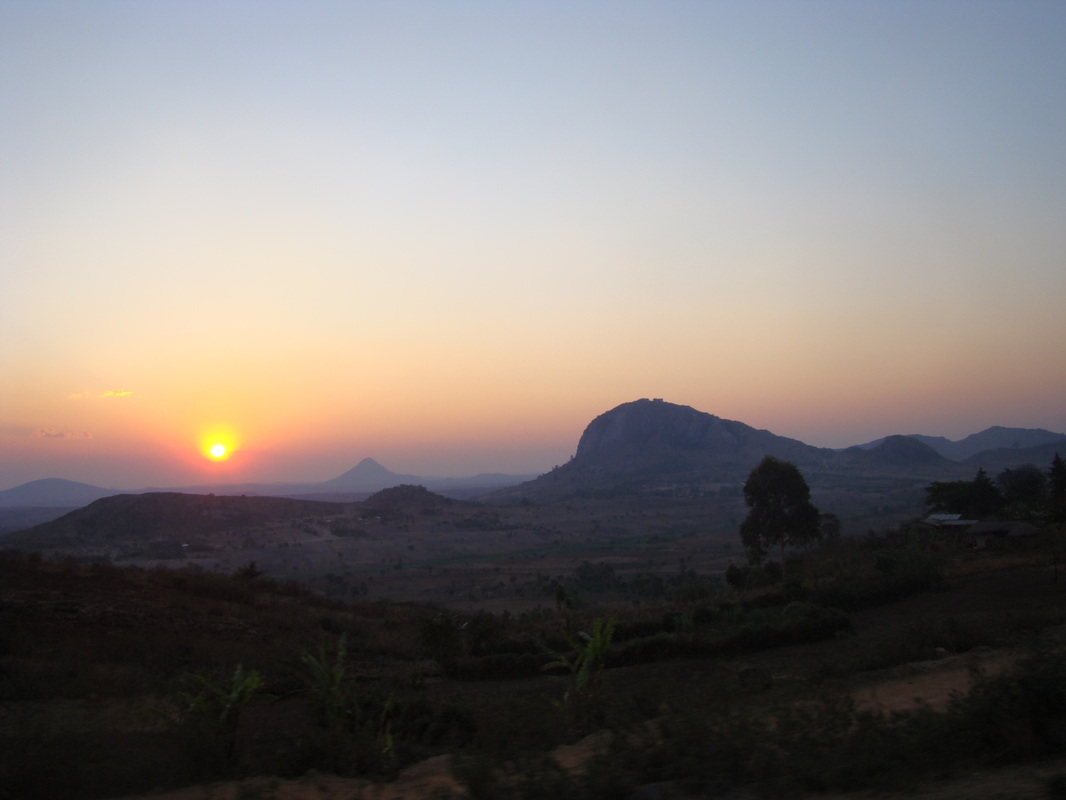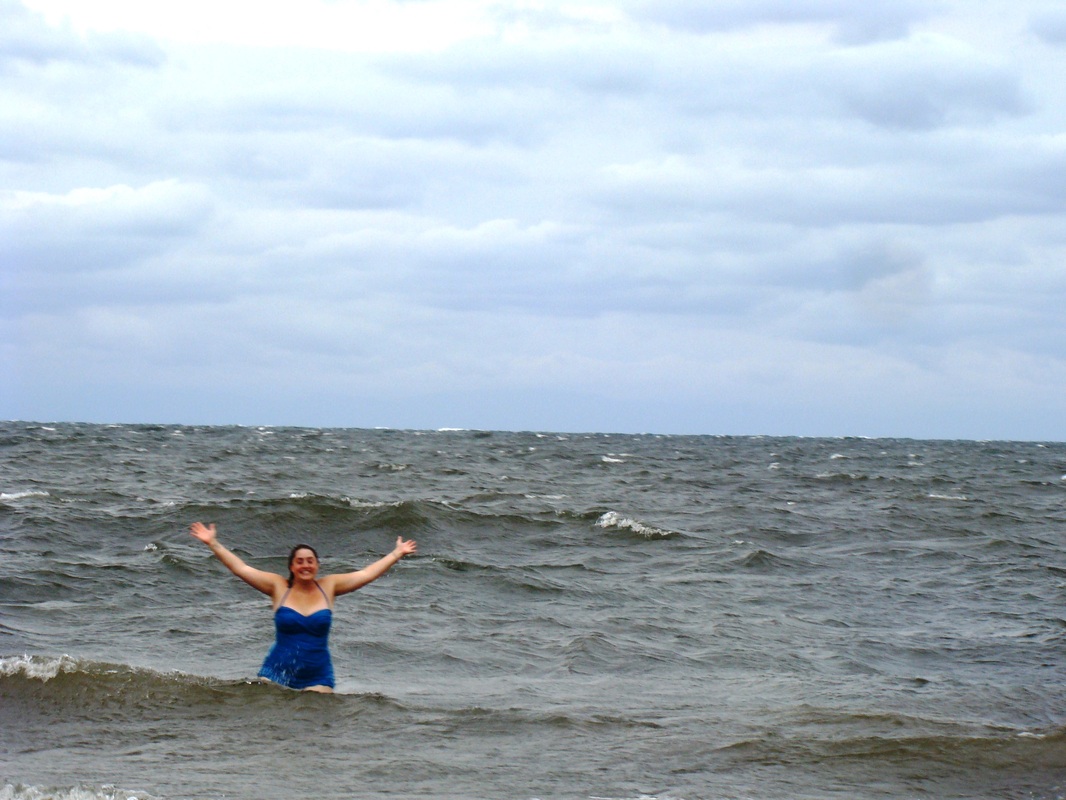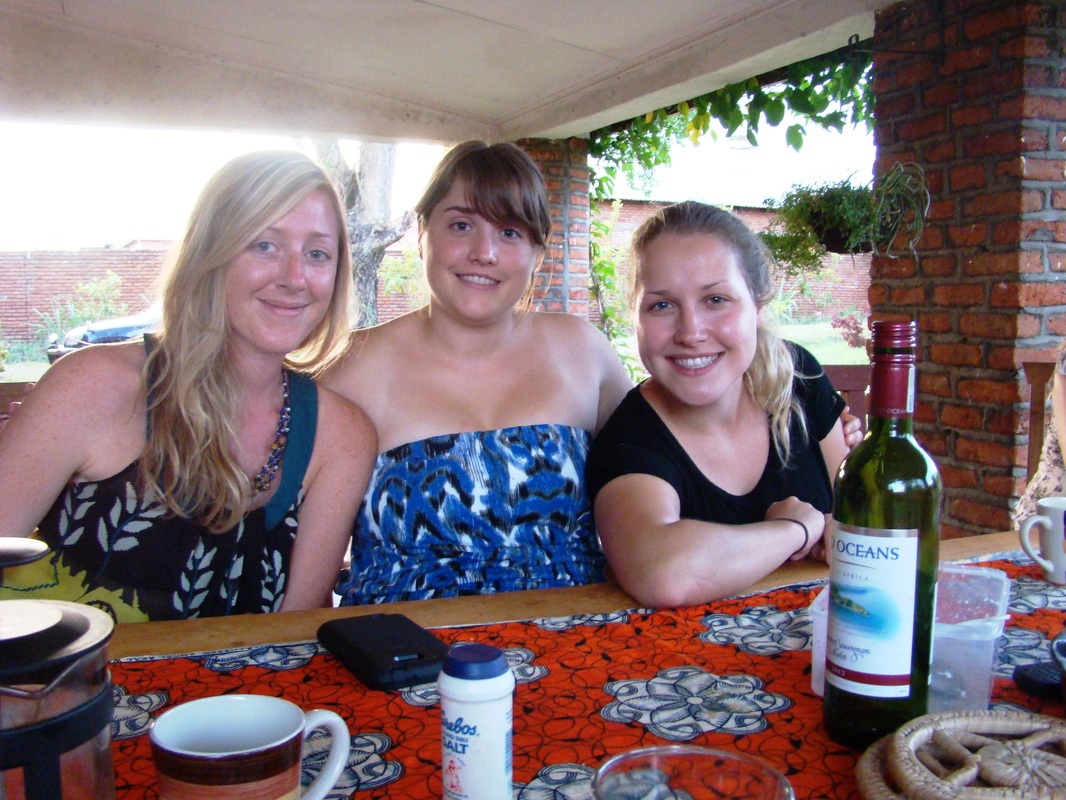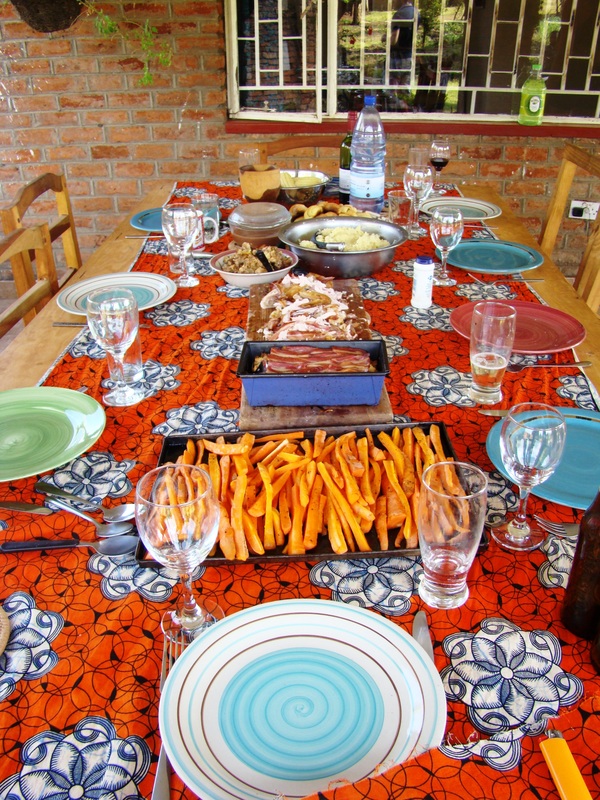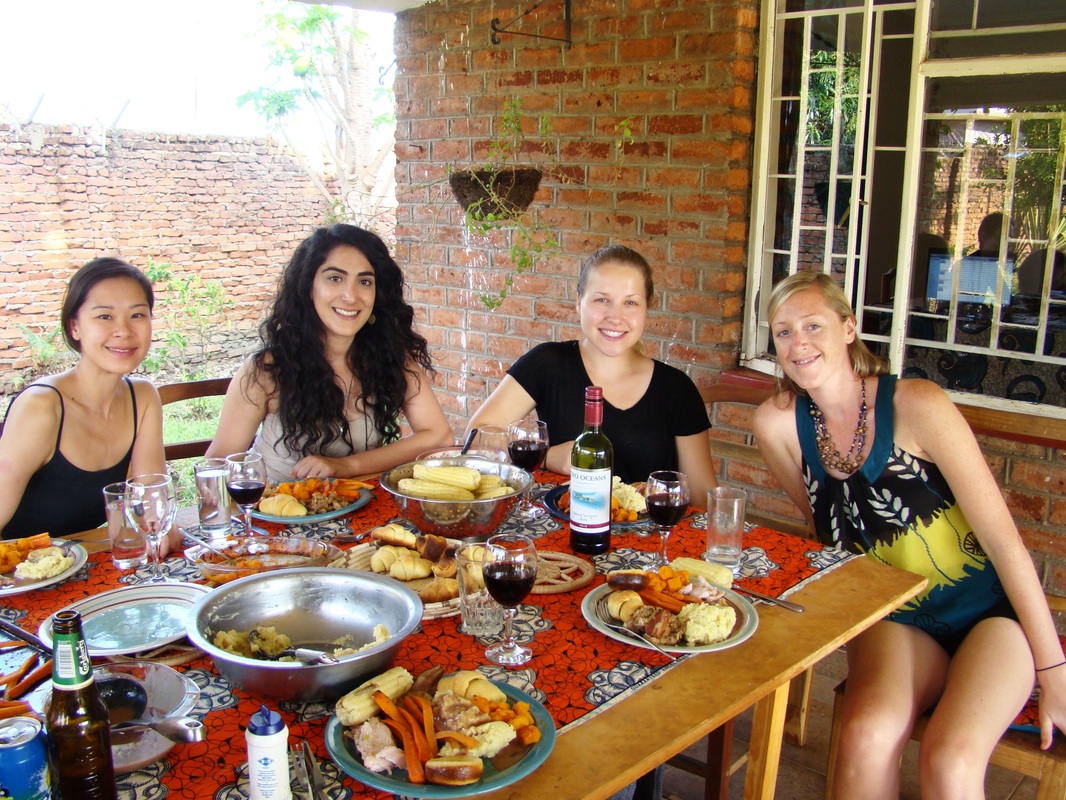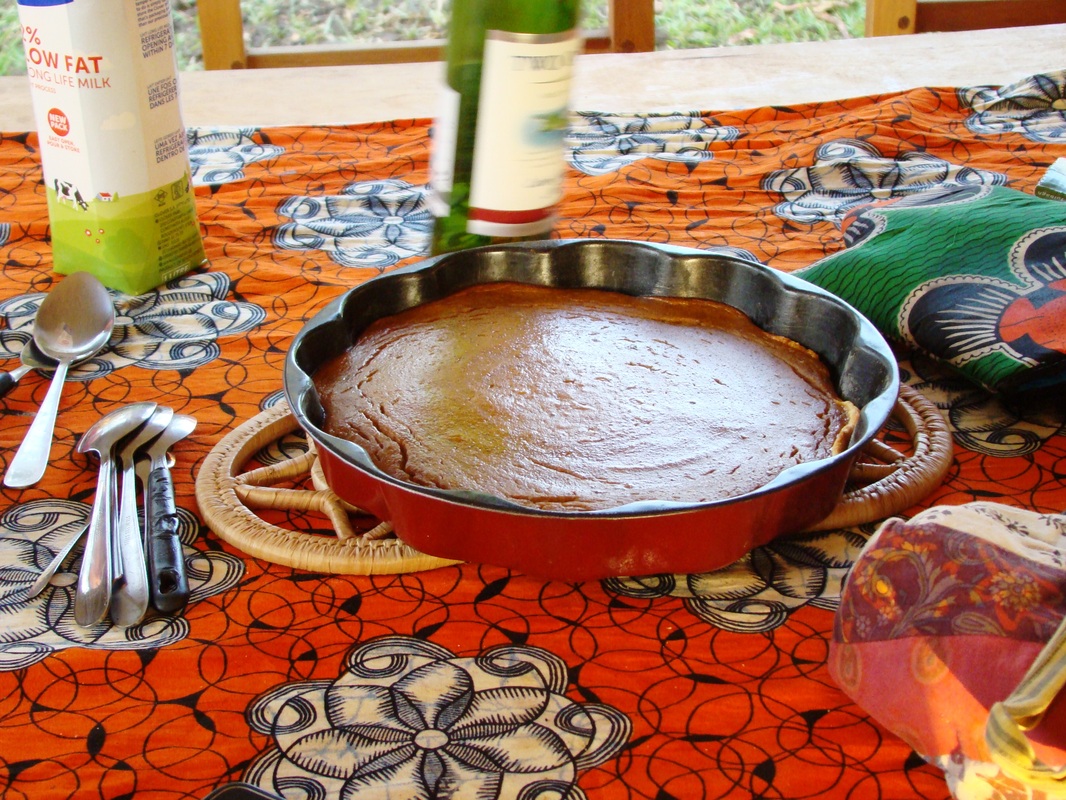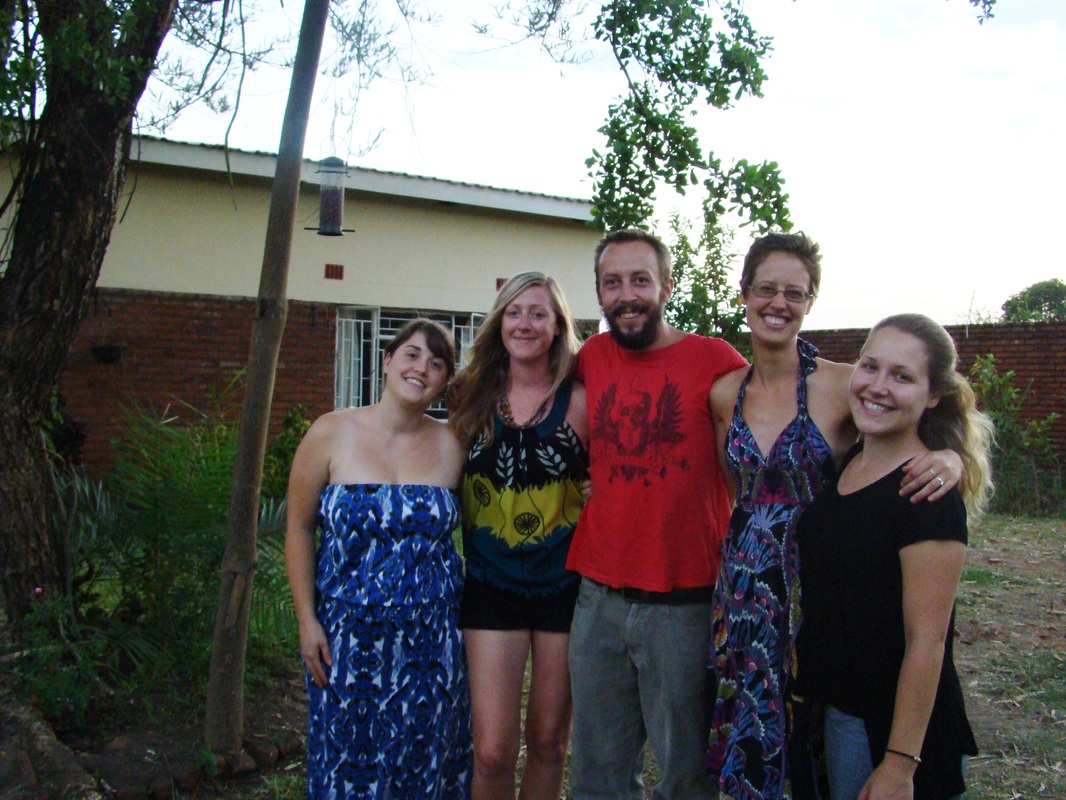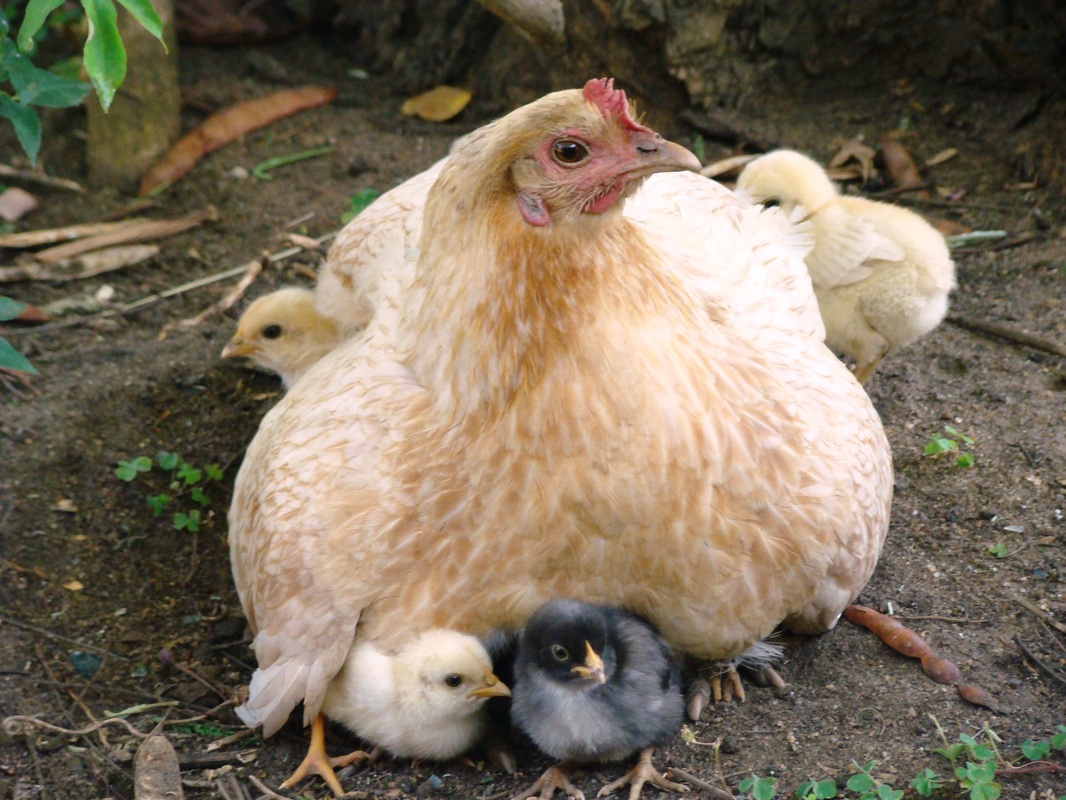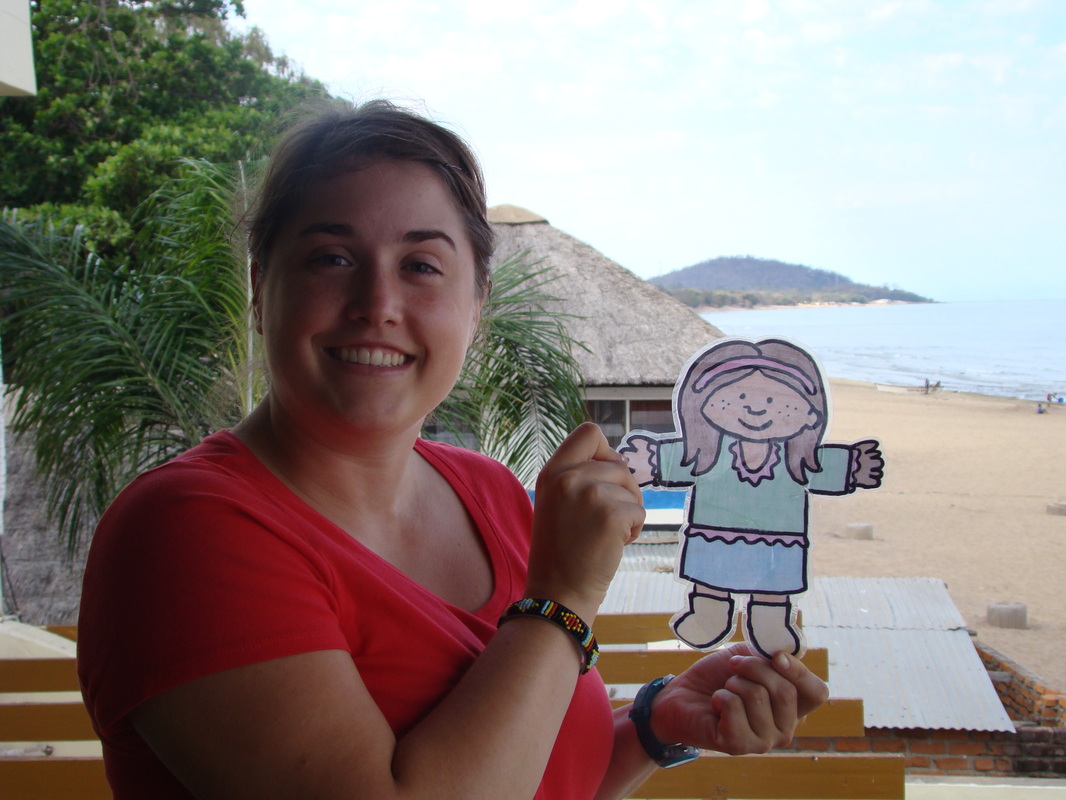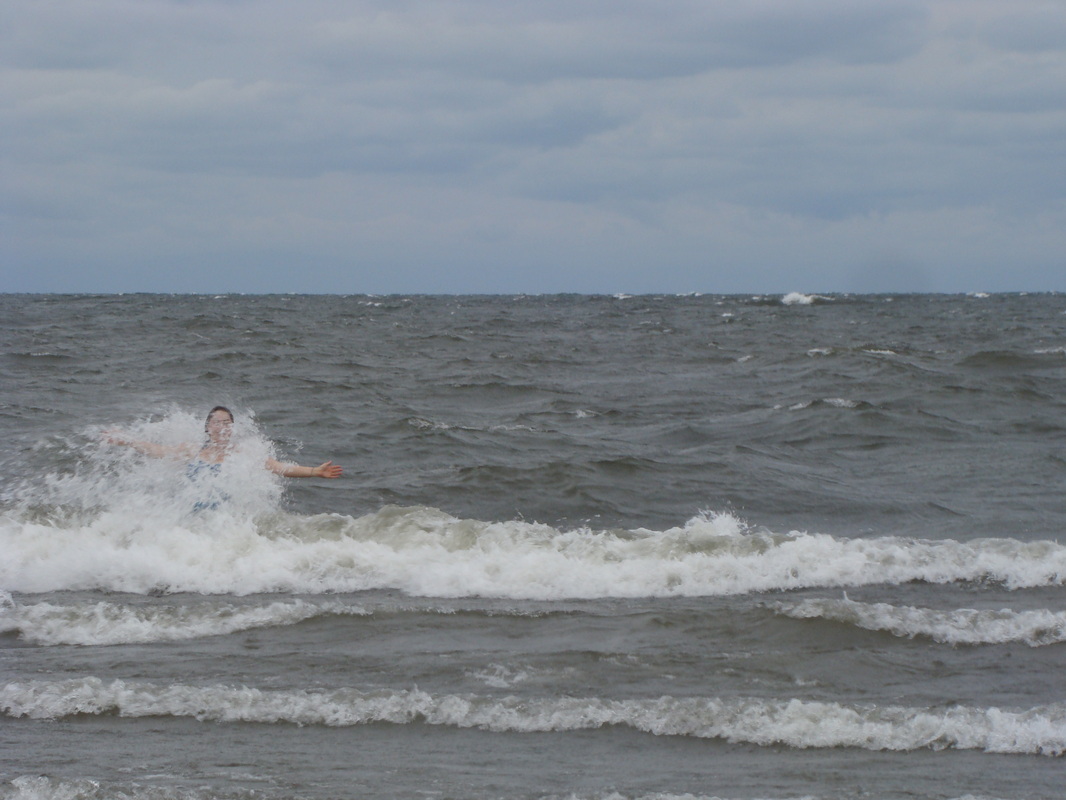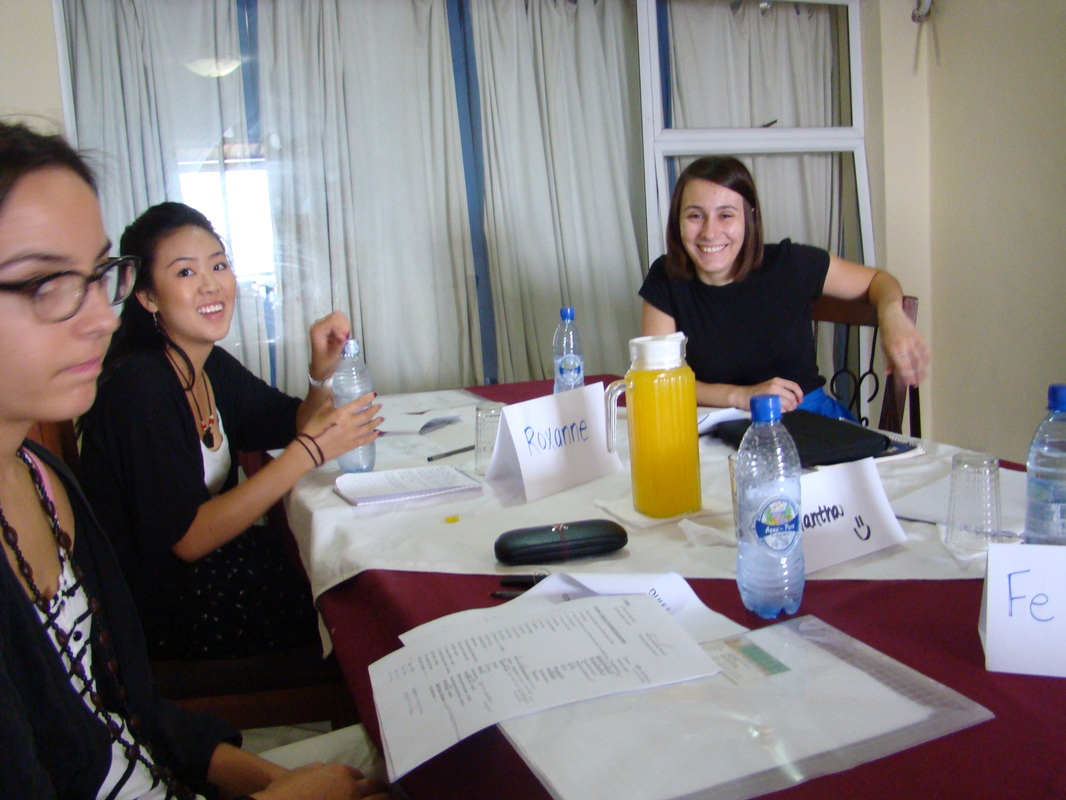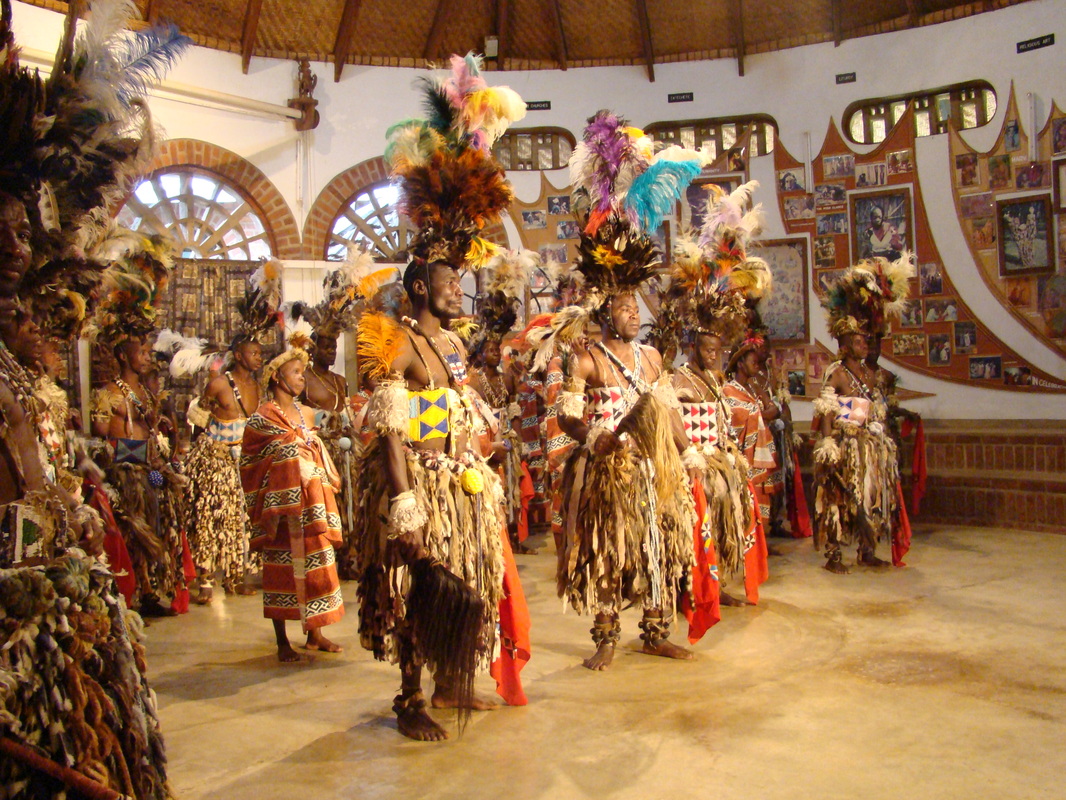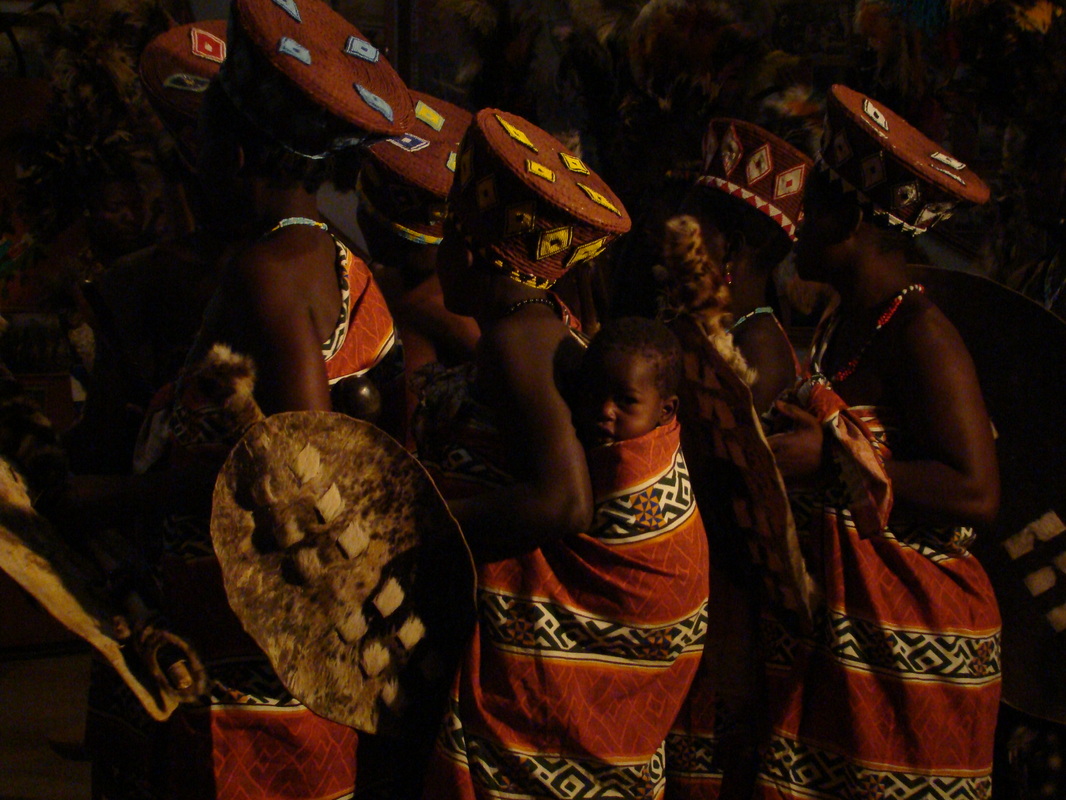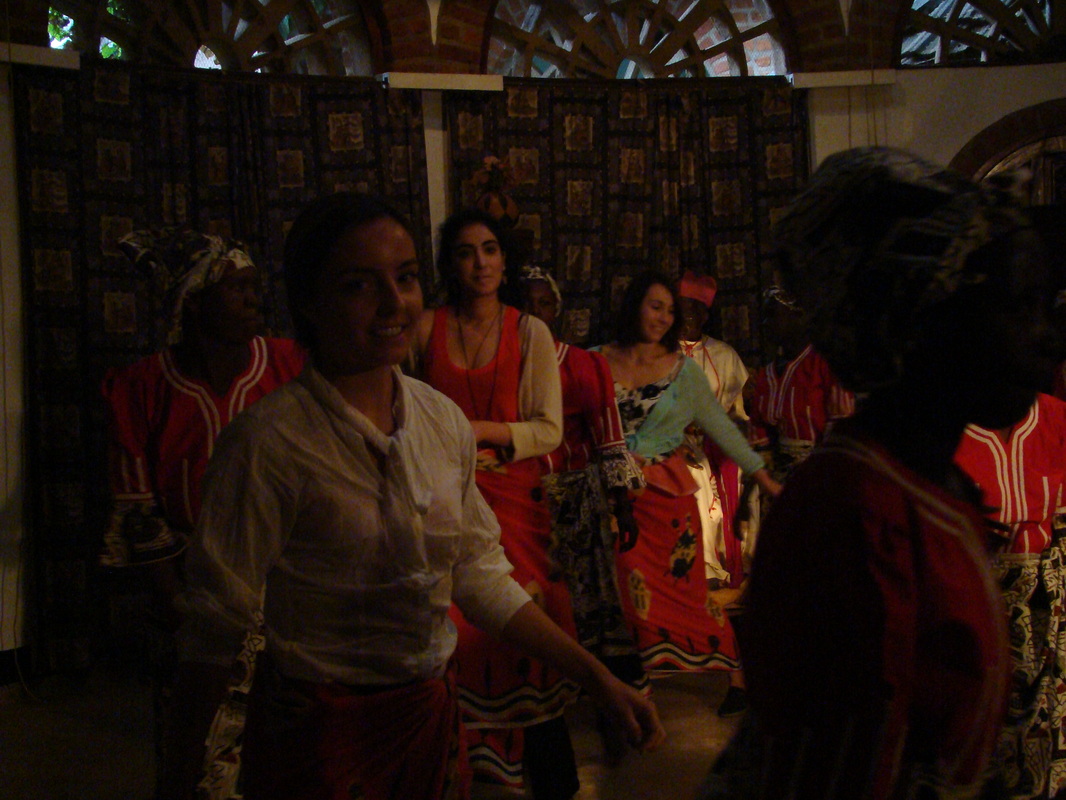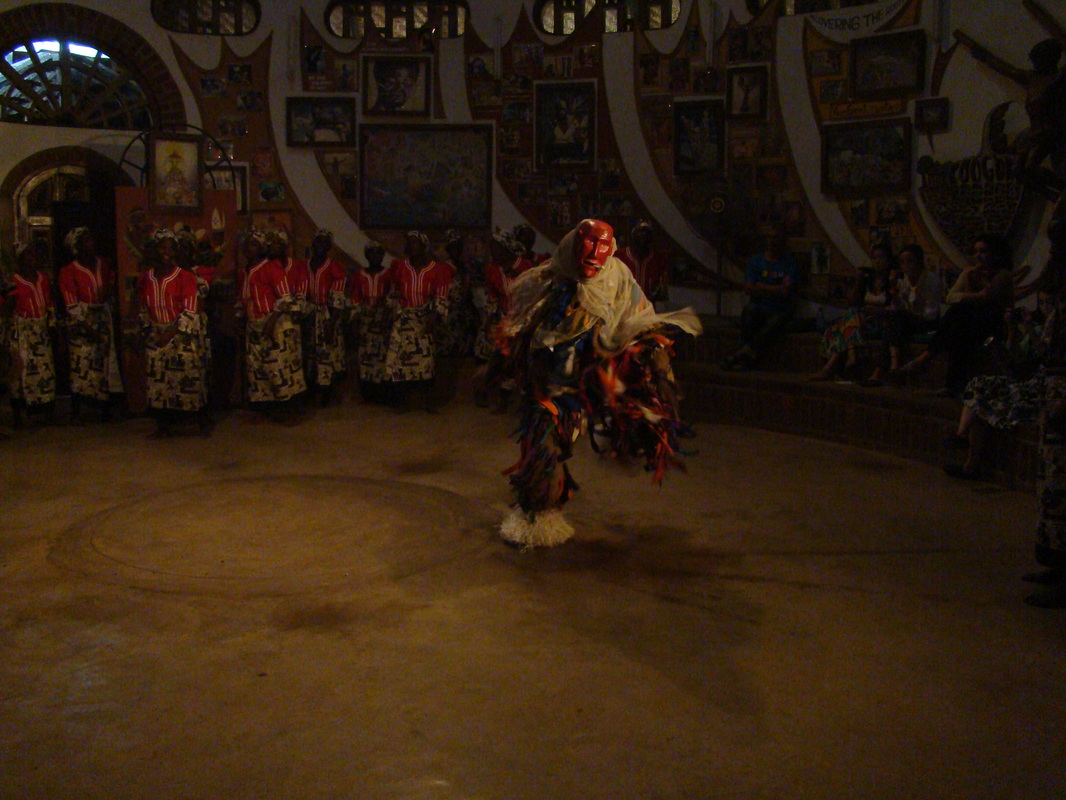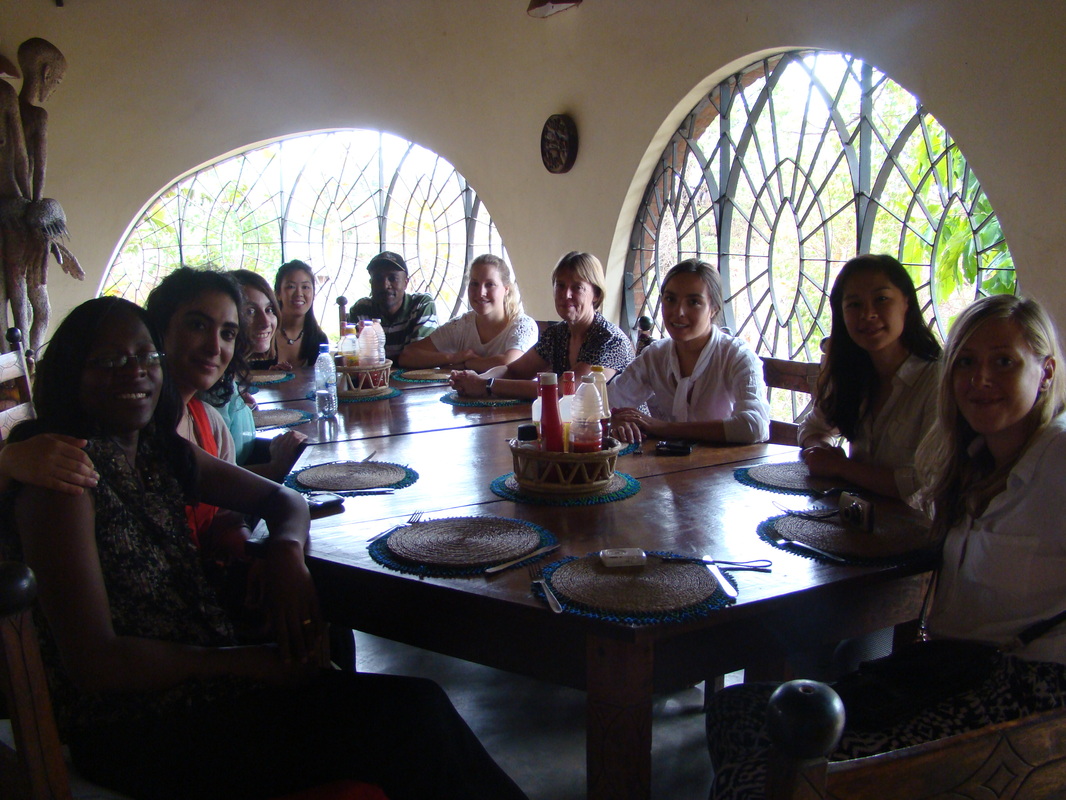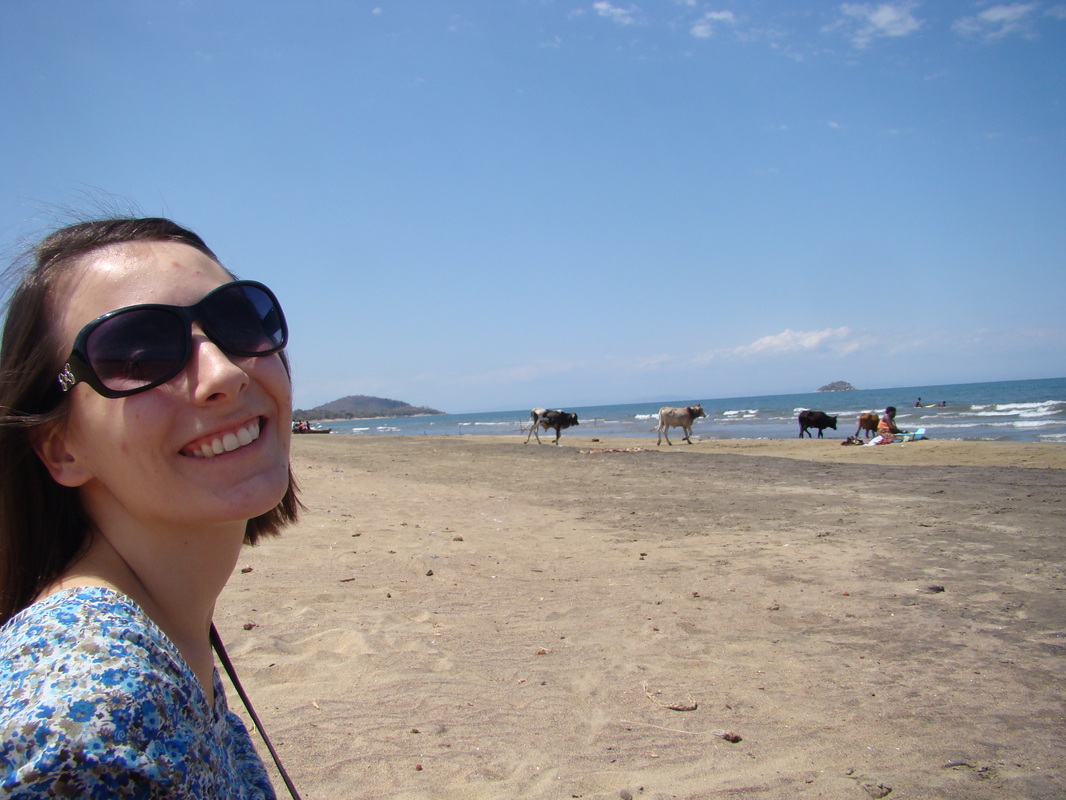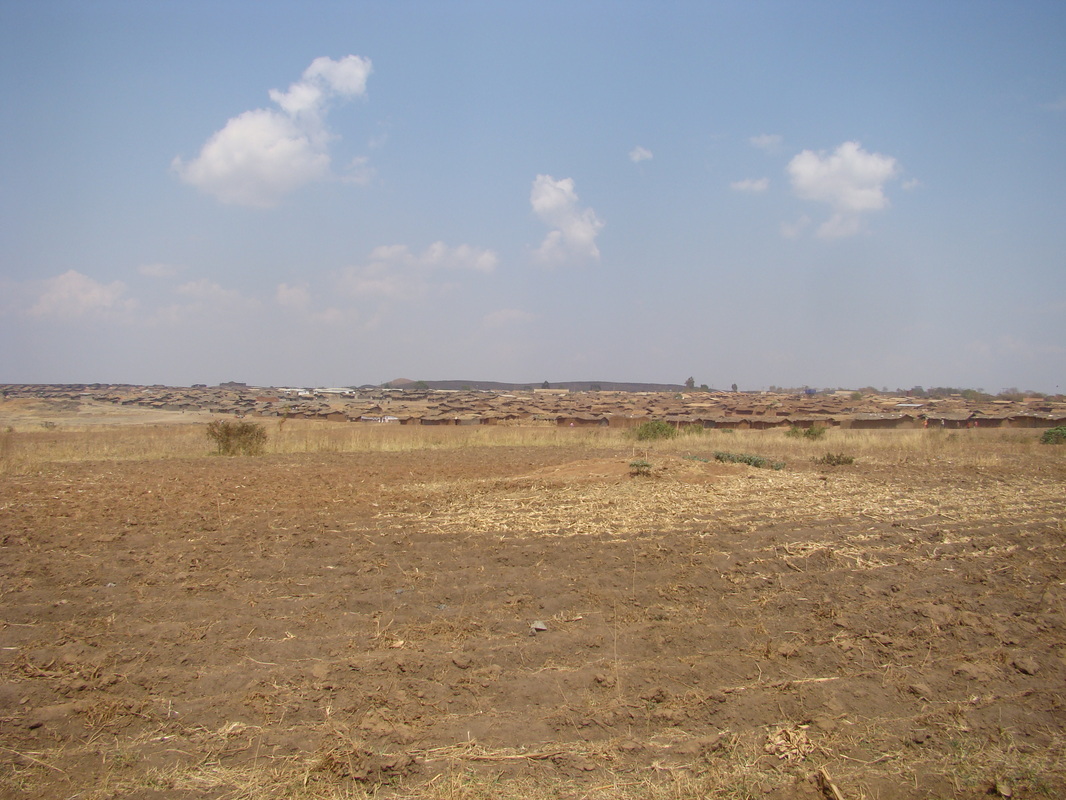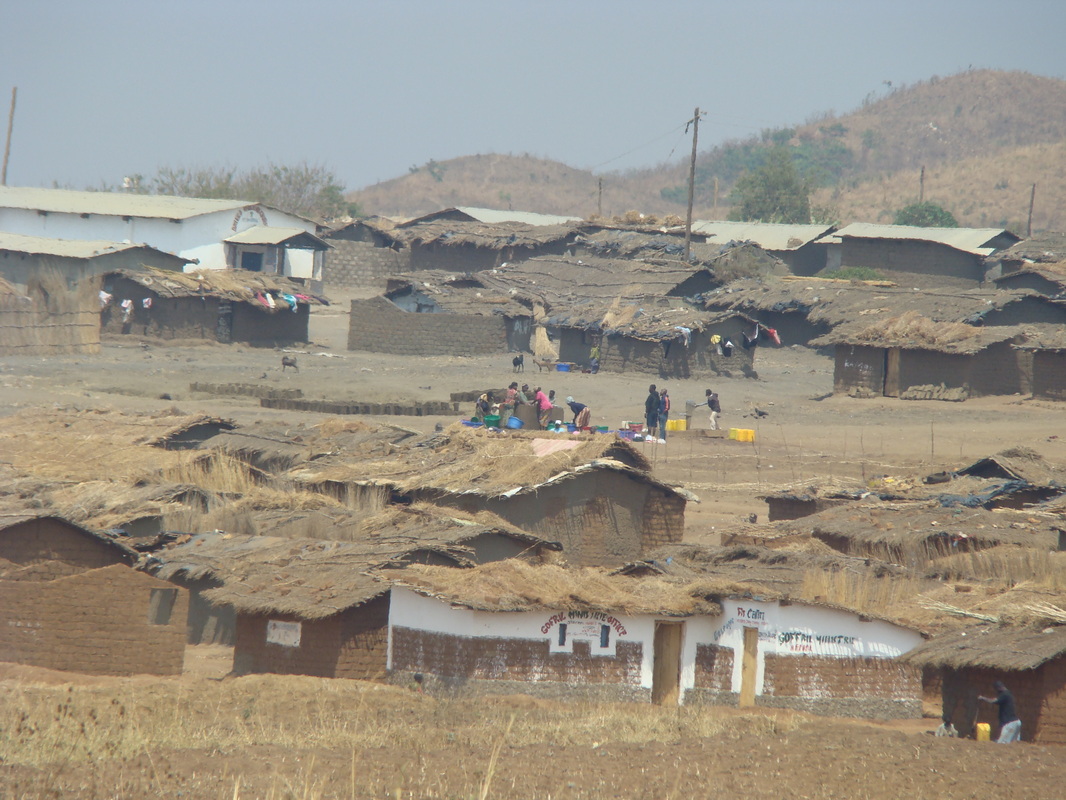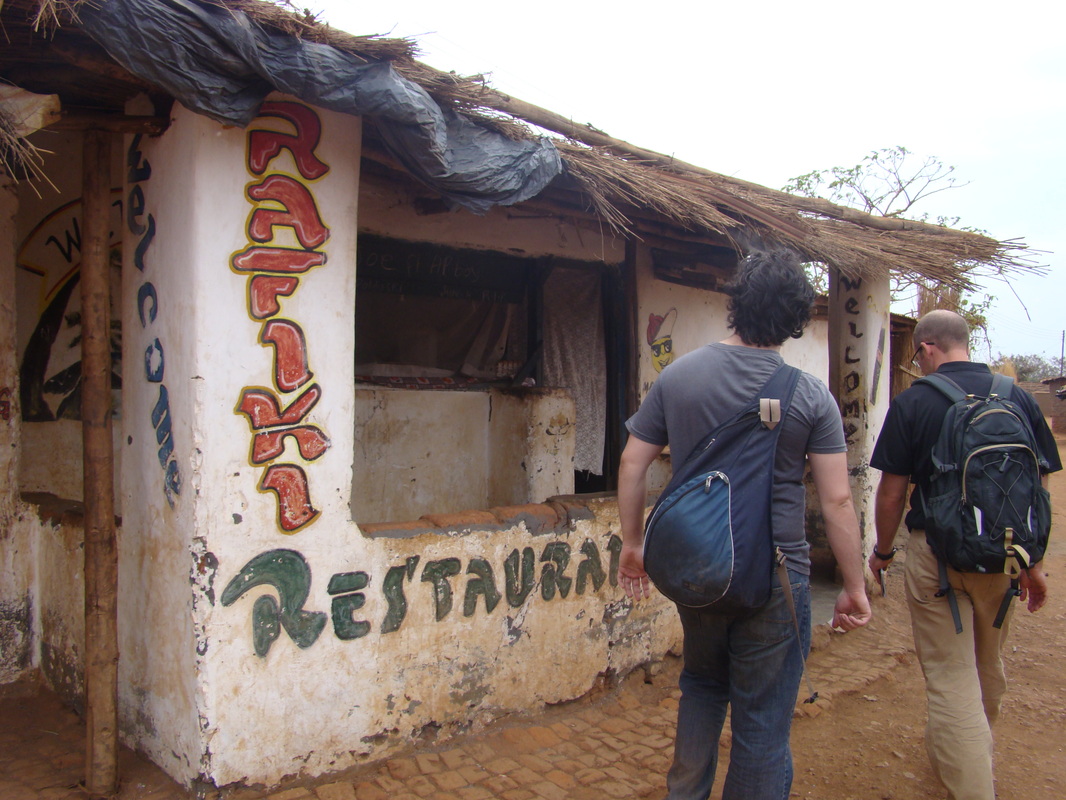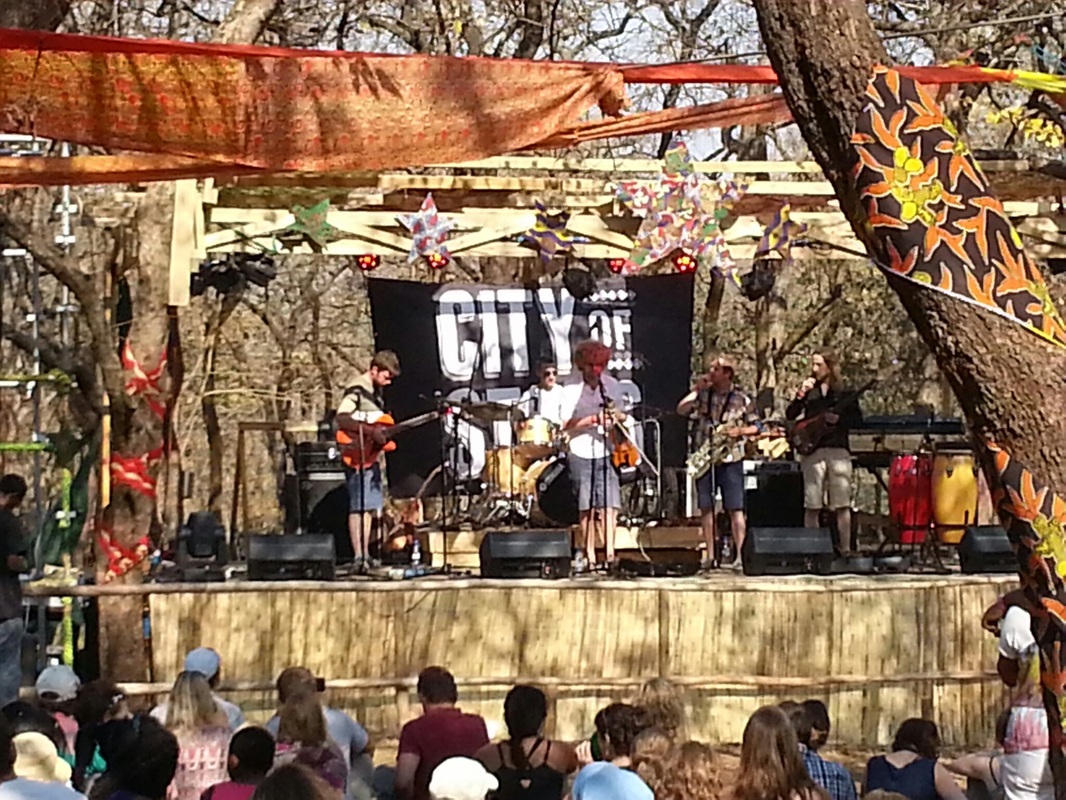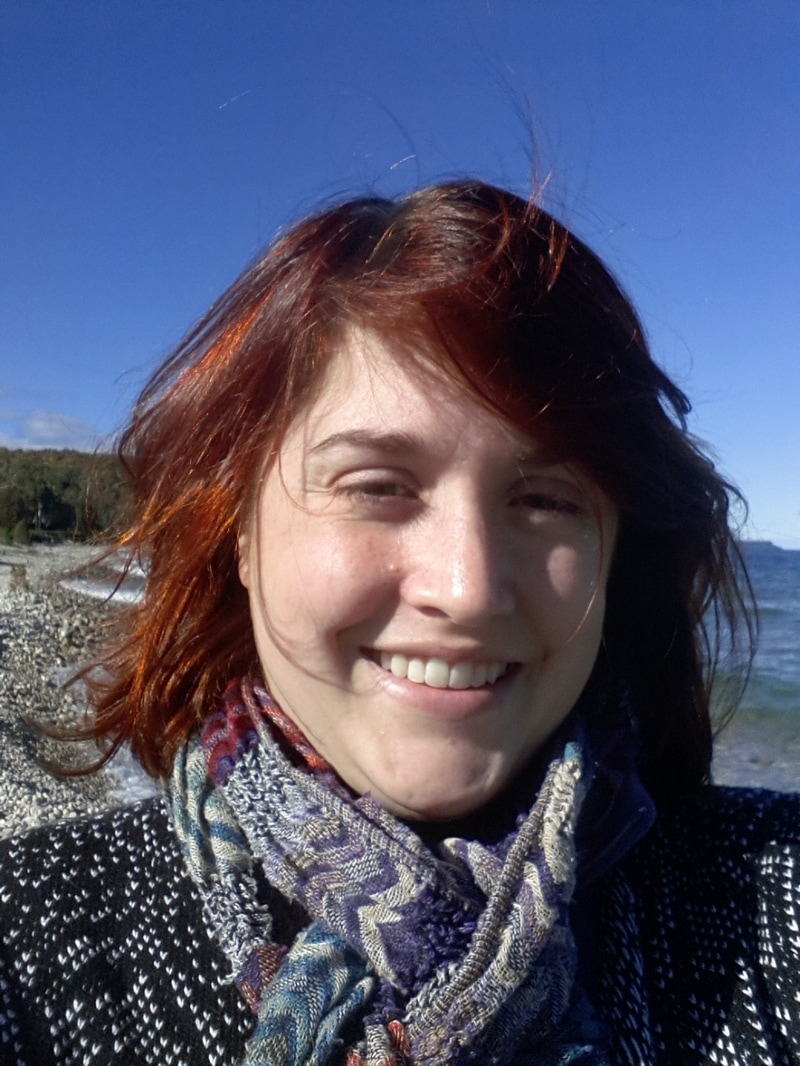|
This past weekend was amazing! Brittany's boyfriend Joe came for a visit, and all the Lilongwe girls took Monday and Tuesday off work so we could have an extra long weekend at Cape Maclear. Cape Mac is a beautiful area of Lake Malawi, and I am so thankful that I got to enjoy it!We arrived Saturday evening after having picked up Joe at the airport and driven 3.5 hours south to the Cape. Samantha & Roxanne, two of the other WUSC volunteers who live in Blantyre, got there before us and had a fun afternoon on the beach. We stayed at Mgoza Lodge (beautiful, amazing food, and reasonable prices!). We had a lovely evening together and made plans for Sunday. In the morning we hired a boat and went out to one of the nearby islands to go snorkelling with the cichlids! It was so cool! I am so thankful for Alisha and Mylan who brought their cameras out with us (Alisha's is waterproof, so we even got some underwater shots!). We hung out on the beach in the afternoon and said reluctant goodbyes to Sam and Roxanne, who unfortunately had to return to Blantyre for work. On Monday, we rented kayaks and paddled to Otter Point and went swimming with the cichlids again, and then, in the evening, went on a sunset cruise on a catamaran! We loved it so much at Otter Point, that Tuesday morning before we headed back to Lilongwe, we hired a boat again to take us out to the point for a few hours. And, of course, on our way home, we enjoyed the beautiful sunset and Malawian landscape!Cape Maclear is most definitely one of the most beautiful and relaxing places I have ever been to! If you ever make it out to Malawi, this must be on your list of stops!
0 Comments
That line keeps running through my head here in Malawi. Money is a little shocking – as there are coins for 1 kwacha, 5, 10, and bills for 20, 50, 100, 200, 500, and 1000. When we arrived, and found out that 1000 kwacha is equal to about 2.5 USD, we wondered why there weren’t larger bills – only to be told by a friend that the 1000MK bills are relatively new!
The cost of living, in order to live like a typical Westerner, is equal to that at home. I am surprised every time I go shopping for groceries and spend $50 easily. It is a little disconcerting to be asked to hand over thousands of kwacha when shopping – but when 400 MK are equal to 1 USD, it quickly adds up! And yet, my experiences here have also shown that it is possible to survive on a dollar a day – in fact, the majority of Malawians and the people I work with do that. And yet, it is simply surviving – barely having a roof, clothing, and food beyond nsima (corn meal porridge) and tomatoes for your two meals a day. The average Malawians are all malnourished – it is such a problem that Vitamin A packets are sold in the corner shops, and the government has passed a law requiring sugar producers to incorporate certain vitamins into their sugar. It is fascinating and horrible to see the wide range in incomes and lifestyles here. As I live pretty similarly to at home (and although I’d be fine living with less luxury, it is generally expected of me to live like this, and if I didn’t, I’d be looked down upon by Malawians for not supporting their economy enough), it is not unusual to spend a few thousand kwacha on a meal, or on a taxi. However, for average Malawians, they go to the local restaurants (where I get food poisoning when I go, though I still do – it’s yummy food!) and spend less than 500 MK for a large meal, and catch a minibus to get home for 150 MK. The other week, I noted a huge disparity in the way I and some of my refugee friends purchase phone credit – I buy it in multiples of 1000 MK, and they buy it in 20 MK increments. When 1 text costs 12 MK and they are purchasing less than 2 texts at a time, that shows me just how little money they have to spend on items beyond the life necessities. And yet – it is such a diverse city, and when I was waiting at the bank the other day, I watched a lady deposit probably 3 or 4 million kwacha in her account – she had a full grocery bag of cash! Anyhow – I just wanted to share some of my observations on the very interesting world of the kwacha! Abide. Abide in the Vine. That is what my tattoo says and means – to trust, rest, have peace and comfort in letting go and allowing God to lead the way. This is such a difficult concept for me, especially because I am a control freak by nature, and obsessive about planning. But – it is something that God has been working on in my life over the past few years. I hate being in the in-between, and something that I’ve realized over the past few months, is that no matter what stage you are at in life, you are always in an in-between of some sort. I really struggled with living in the present and not fretting over the future the past three years in university, and I am so blissfully excited and happy to not be struggling with that right now! I just have this overwhelming feeling of finally being ‘home’ here in Lilongwe, and have absolutely no desire to leave. I sat down and analyzed this feeling, because it is such a strange one for me to have, and what I have concluded, is that it is not my job (though I am really enjoying it), nor is it the people (though I love my friends here), nor is it the country (which is absolutely amazingly beautiful) – it is a sense of being in the right place at the right time – in God’s time. I do hope that this can become my permanent home, as I feel like there could be an awesome future for me here – there are many opportunities for my skill set and hopeful future degrees in special needs education and library sciences, and I really don’t see any reason to leave. But, part of abiding is to let go of the idea of forcing plans for my life to happen, so I am waiting to see what opportunities pop up during this coming year. I am glad to have a daily reminder on my wrist to keep me grounded in the now, and stop worrying over my next steps. After all, it's not like God doesn't have a fantastic plan in mind for my life! 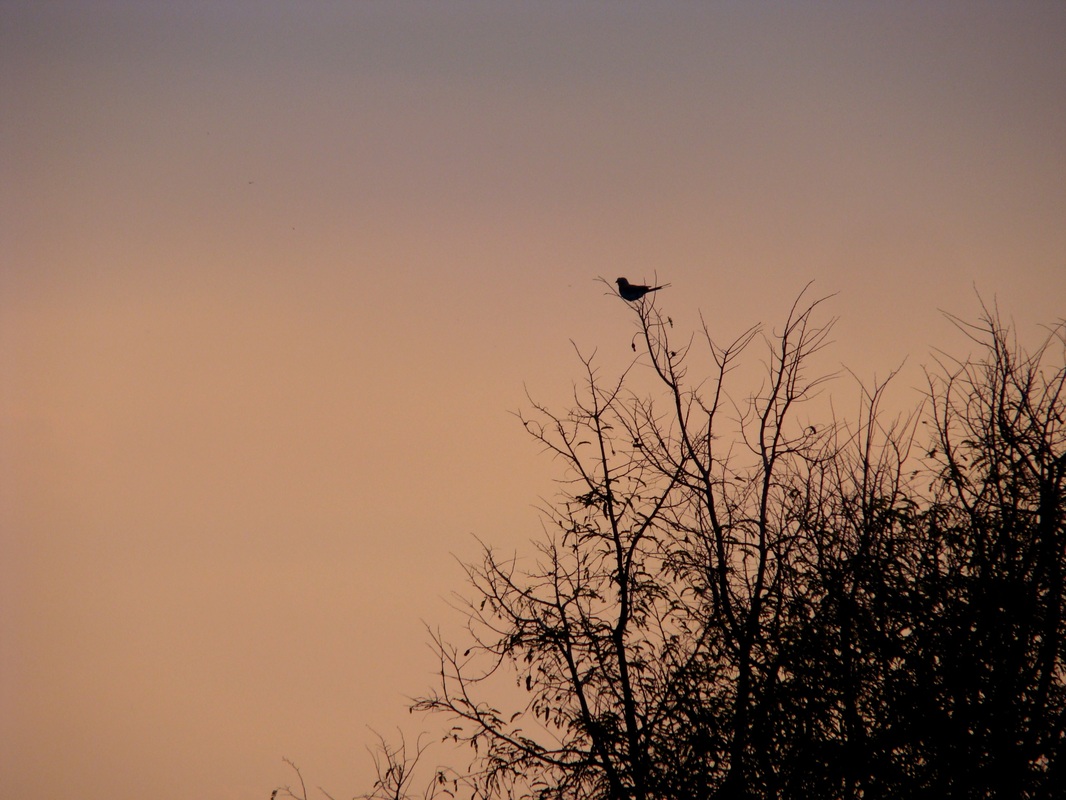
Matthew 10:29-31 (The Message) "“What’s the price of a pet canary? Some loose change, right? And God cares what happens to it even more than you do. He pays even greater attention to you, down to the last detail—even numbering the hairs on your head! So don’t be intimidated by all this bully talk. You’re worth more than a million canaries."
This weekend was absolutely amazing! The Lilongwe girls – Alisha, Brittany, Mylan, and I – went to Liwonde National Park to go on safari! We neglected to plan ahead, and found ourselves making reservations mid-week, and figuring out transportation on Friday afternoon. Maybe not the best idea, but we managed to work it all out and have the weekend! We left Lilongwe at 4am on Saturday, with our favourite taxi driver, Andrew. The other girls slept and I took pictures of the beautiful sunrise over the quirky mountains of Malawi. We pulled into the Liwonde Safari Camp at 7:15am and Andrew parked about 2 metres away from an elephant! Marly and David, a couple who are helping the owner out, quickly ran over and got Andrew to back up before we caused an elephant stampede. What a start to the weekend! We spent the morning relaxing on the property, and after lunch, headed out with another group of 4 visitors to go on a boat safari. The boat safari was wonderful – we spent the afternoon cruising the Shire River and by my estimations, saw over 100 hippos, around 100 elephants, 10 crocodiles, various deer-type animals and birds. It was fantastic! We returned from the boat safari and shortly thereafter, headed out on a walking safari at dusk. We saw some warthogs, elephants (there were two younger ones fighting!), antelope, hippos – and thoroughly enjoyed ourselves! In the evening, we had a huge buffet dinner and chatted with the other 6 visitors, Marly and David, and the owner, Frederick. I was exhausted from the long day, and headed to bed around 9 – only to be woken up by Mylan at 12:30, when the herd of elephants returned and walked right by our raised tent! It was so neat to look out the windows of the tent and see an elephant at eye level, only 2 feet away, ripping branches off the bushes next to us! On Sunday morning, we got up nice and early again, to head out for a driving safari at 7am. We saw many more antelope, bushbuck, impala, sable, a family of elephants, a few water buffalo, monkeys, birds, and many warthogs. We spent the afternoon reading on a viewing deck, and Andrew picked us up to return to Lilongwe around 3:30pm. Once again, I got some lovely pictures of the Malawian landscape, this time as the sun was setting.
I would definitely recommend visiting Liwonde if you ever make it to Malawi! We were all so amazed at how many animals there were, and how easy it was to see them – all weekend, we were crazily snapping photos of the each animal, not knowing if it would be the only one we would see, and now I have over 1500 pictures to weed through! This week has marked the first days of real work on my new mandate. I was assigned this new job decription about two weeks ago, but haven’t yet shared because I had not begun official work on the project, and was therefore a little confused about how my role would work. Now, I am so excited to tell you how God has been working behind the scenes to set up my placement as perfectly as could ever be imagined for me. I am passionate about orphan and vulnerable child care, with an extra special interest in special needs children, if you hadn’t noticed from my blog verse and many of my posts. When I initially applied for my fourth year placement, I scoured the list for positions working with vulnerable children, and the closest I could find was working in a youth center. So, as I am more interested in younger children than teenagers (the hormones – oh dear!), I diverted to working with vulnerable families, and found the perfect job in the JRS placement. Then, two days before our applications were due, the placement coordinator informed me that the JRS position had been dropped from the list and I would have to apply elsewhere. I really did not want to, and ended up applying to fewer positions than recommended, because I am simply not interested in the environment focussed side – I want to work with people. I was rather stubborn (thanks to my German genes!) and ended up emailing the placement coordinator and WUSC coordinator over Christmas break, to request that they reassess and consider letting me apply to JRS after all. My persistence paid off, and not only was I allowed to apply to JRS, I was given the opportunity to have a skype interview and question session with my potential supervisor, as a way to ensure that both sides knew what they were getting. I ended up with a confirmed placement about two months before anyone else in my class, which was amazing for me, as I hate the uncertainty of in-between places (yes, I am a control freak). I was ecstatic! But, as with many areas of life, doubt soon struck in early summer, and I began to question the choice of my placement – my second choice placement as a job on the environmental side of things, but was located in Burkina Faso, where I’d be able to improve my French and spend my free time volunteering at a local orphanage. Just in time, as often seems to happen, God confirmed my persistence and erased my doubts when WUSC had to cancel their placements in Burkina Faso due to violence in the area. One again, I was so thankful for my Malawi placement – if I had pursued the Burkina Faso placement instead, I would have been searching for a new placement 1.5 months before needing to leave! So, now on to my actual job! My original mandate was that I would work with the Umoja women’s craft group to improve their market and the sustainability of the venture; that I would assist in expanding the community garden through the creation of a new course in permaculture principles, and that I would work with the college and community libraries to improve their organization and increase their collections. All of these projects are things that I have interest in and skills that I can apply – but, don’t result in a lot of interaction with children. Then, about three weeks ago, the JRS country director determined that a volunteer placement coud be better used in a very different position. When she proposed this change in the mandate to me, I was hesitant to get too excited or to share, because I thought that my program might not approve it. However, when I submitted the new job description to my program for approval, it came quite quickly! So, now I can introduce you to my new job! I am now working in a supervisory role in the implementation of a new special needs class in the JRS primary school. There are two teachers at the school that are trained in hearing and visual disabilities, respectively, and they will be running the class, with assistance from Respite Care workers. I will be managing the files, monitoring and evaluation and reports for JRS, as well as being an educational assistant as needed within the class. Today, some of the Respite Care workers who are familiar with the children took the teachers and I on home visits and we were able to do some initial evaluation and meet the children. It will be a very interesting class! The ages range from 7 to 14, special needs and disabilities range from physical issues such as injuries, blindness, and hearing issues, to mental disabilities that range from learning issues to severe mental delays. We will definitely be learning a lot about these children as we begin, and I am already in love with all of them – they are so sweet! Now our team is working on kitting out the schoolroom which is currently an empty concrete room, and preparing some further evaluation and introductory curriculum materials. I am just so blown away by the perfect fit that this placement is for me! My hope following this degree was to either get my library sciences degree or education degree, with a focus in special needs education, and then I hoped to work with special needs children somewhere in Africa. How cool is it that I now get to do that as part of my degree, and I will now be graduating with experience in my dream field?! Sorry for the crazy long post – but there was so much to share about this experience! This song by Hillsong United is one that has been carrying me through the lead-up to, and beginning of this placement – and I must say that as I stepped out into this great unknown of moving across the world, and being in limbo at work for a few weeks, God’s grace and peace has been my constant comfort and I’ve been full of joy, even when in the uncomfortable place of waiting. Enjoy! Well, I had hoped to write about my job today, but after our fantastic Thanksgiving dinner, I am in a bit of a food coma and so I am taking the easy route and am going to share about today! I'll get to talking about work later on this week, OK? On Tuesday, we suddenly clued in to the fact that this weekend was Thanksgiving, and decided we'd have to have a big dinner, so we invited over a few friends and got thinking about the menu. We thought we'd have a lot of difficulty finding ingredients for the typical Thanksgiving meal, such as turkey, pumpkin, cranberries, squash, and turnips (as well as the pre-prepared stuff), so we set aside Saturday as our shopping day. We managed to find quite a lot of the ingredients, and what we didn't find, we either did without, or found recipes to make it from scratch! We spent all day on Sunday preparing for the feast, and it turned out really well! We had chicken with bacon, gravy, stuffing, mashed potatoes, Yorkshire puddings, roast carrots, butternut squash, corn on the cob, crescent rolls, and pumpkin pie and ice cream for dessert! Each of us housemates had a different task, and other than the Malawian corn on the cob, which tasted more like corn flour than sweet corn, we all felt it was a big success! I also wanted to introduce you to my housemates. Brittany, Alisha, and I are all WUSC volunteers and are living in Jo & Jo's house. Jo Female is from the UK and works for a local NGO that educates children about HIV/AIDS through theatre, and Jo Male is from Ireland and is an art teacher at a local private school. We all get along really well, and have a lot of fun together! I am so thankful that I have such a great Malawi Family! There is so much to be thankful for - and I want to mention a few of these in light of the holiday: I am so thankful that I have an amazing and supportive family, fantastic friends at home and around the world, the resources to attend university and gain knowledge and skills, the ability to travel, the feeling of home that I have found here in Malawi, and wonder of internet that allows me to stay in touch with those I love!
Tuesday is Mothers Day here in Malawi - so Happy Mothers Day to all you mothers out there, and a special one to my fantastic Mumsy who is so sacrificial in her love and care for her family! What are you thankful for this year? Let me know in the comment section! This past week was a full one with a five day Language and Cultural Training by WUSC in Salima. Salima is about 1.5 hours away from Lilongwe, and is the name of the region and a town right on the shores of Lake Malawi. Lake Malawi, by the way, covers nearly 30,000 square kilometres, is 580 kilometres long, and 75 kilometres wide, and boasts the greatest diversity in fish species of any freshwatering lake in the world! The weather while we were there was mostly stormy and overcast, though we did have a few afternoons with sun (and you better believe that I went swimming even when it was stormy out - I only get so many chances to go swimming in Malawi, and that lake is just lovely!). It was great to get to see Anna (my fellow INDEVOUR in this country) and meet some other WUSC volunteers who are living in Blantyre, as well as hang out with the WUSC volunteers that I live with in Lilongwe. In total, there were nine of us there for the training - all girls, and nearly all in our twenties, so we had a blast! The first two days of the training were cultural training, and our facilitator, Franceswell was a rather funny guy. We enjoyed learning about Malawian history and culture on the first day, but it seemed to us that he got a little sidetracked on the second, so it wasn't really our favourite. The third day was extra fascinating, as we drove to nearby Kungoni Centre of Culture and Art. It originated from the Mua Mission, an evangelistic movement set up by missionaries in 1902. In the 1970s, a Father came and set up the centre as a means of teaching local artisans more skills in woodcarving, and evolved into a way to preserve the traditions of the local cultures as well. Chisale (the Malawian name given to the Father who began the centre) was our tour guide for the day, and explained to us the traditional dances and their meanings as a troupe of local dancers performed for us. The dances are family dances, so the husband and wife always participate together, which I thought was really neat (and some of the women carry their babies on their backs). The traditional Chichewa dance is called Gule Wankulu and involves men dressing in costumes that represent various things, and performing in character while the rest of the village sings their song. It was very interesting, as there are thousands of different characters, and many have multiple songs - but they all knew them! Also, these characters and dances are a way for information to be communicated among the villagers - for instance, one character represented a heavy drug user, and his song warned against becoming addicted to drugs. Some of the girls even got to dance with the women during one of the songs! The fourth and fifth days were language training days, and we had a lovely teacher named Austin, who, very patiently taught us the basics of Chichewa. He really was amazing, as not only did he understand the questions we were asking, he was able to explain all of them so that we could understand how the language operated - I have had few language teachers of that calibre, and it definitely inspired me to continue working on my Chichewa. In our leisure time, we shopped the beach vendor wares, enjoyed the beach, chatted, and went swimming - though, most often, I was the only one getting wet! It was rather humorous to see the local cows take a stroll down the beach and enjoy the water - in amongst the fishermen, women doing laundry, children playing, and us tourists trying to have 'beach days'! Also, just an odd thing that I feel the need to share - we were out for dinner the one day, and the restaurant was playing a channel that first featured a pastor preaching with a backdrop of the Star Wars theme, and then played a Steven Curtis Chapman song!
Overall, it was a great week and full of learning experiences, and I am so thankful that WUSC organized this for us! I have been asked to give a more in-depth description of the refugee camp and what exactly I am doing there. Currently, I can only do half of that, as the country director informed me the other day that she wants to re-write my mandate, so as of now, I am in limbo. My original mandate had three parts, the first of which was to work with the community garden group to expand and continue their knowledge acquisition, and to perhaps add a small-scale farming operation to it (i.e. rabbits or aquaculture). The second part was to work with the Umoja craft group to build their capacity and help the group become self-sustaining. The third part was to work with the community library and JC-HEM library staff to teach them how to run a library, organize them to be a more functional and useful space, and to source additional needed materials. Well, to be honest, the original mandate was just a few words on each aspect, but in the three weeks I have been here, these are the areas that had been discussed and, in my view, needed work. OK – back to the camp! Dzaleka Refugee Camp is located about 45 minutes north of Lilongwe, in the region called Dowa. Dzaleka means ‘we repent’ and the original use of the site was a prison. In 1994, it was converted into a refugee camp for people fleeing genocide and wars in Burundi, Rwanda, and the Democratic Republic of Congo. There are also refugees from Somalia, Ethiopia, and Eritrea living in Dzaleka, most of whom are passing through on their way to South Africa. Over the years, the other refugee camps in neighbouring countries and other regions of Malawi closed down, leaving Dzaleka as the only one in Malawi. The current resident count is around 19,000. The partners in the camp are the United Nations High Commissioner for Refugees (UNHCR), the Red Cross, the Government of Malawi, and the Jesuit Refugee Service. There may be other smaller organizations working in the camp, but they are either working under the radar or have partnered with one of the previously listed organizations in order to do their work. For example, the World University Service of Canada (WUSC – my placing agency) works through JRS to run a program that places up to 20 top students into Canadian universities, sponsors their studies, and helps them to become Canadian citizens. It is a hard life in the refugee camp, and the people living there are struggling to make the best of what they have. However, it is a complicated situation, as the surrounding region, Dowa, is also a poor region, and the assistance that the refugees receive has been leaving a bitter taste in the mouths of Malawian officials who are also struggling to ensure that their people are surviving. If you would like to read some more about Dzaleka, the following are links to some articles and personal stories of refugees.
- JC-HEM article on education - Refugee Voices - UNHCR article on a student - US Embassy press release on a visit to Dzaleka - Malawian news article on issues with the camp This past weekend was City of Stars, an amazing music festival that happens annually in Malawi. This is the first year for it to be held in the City, as in previous years it was Lake of Stars and was held at the lake along the beach. Based on the reaction of people who have been previous years, the beach is better! However, it was an awesome event and we had a lot of fun! It was held at a local hotel, the Sanctuary Lodge, and had 2 stages set up with multiple bars, food stands, and craft stands in between. We went on Friday night, and then again for the day and evening on Saturday. Umoja Crafts was given a table, and I spent most of Saturday helping out at the booth to give the other ladies breaks. There were some really great bands, a few mediocre ones, and one or two garage bands that were so bad that it was odd to have them there! But my overall favourites were a Kenyan band called Sauti Sol, and a Norwegian band named Svermere. Oh my word – Svermere! I was helping at the Umoja booth and heard the sounds of a fiddle being tuned – by the third or fourth note, I turned to the ladies and said that I needed to go and watch this band! They are clearly all classically trained musicians, by their varied style and the way they handle their instruments, and their music is phenomenal! I was so excited about them, and even got to sell the fiddler and his girlfriend an Umoja coaster set later on in the day! Sauti Sol was more of a pop band and one of the songs for their new CD (out next year) had great lyrics that I just loved – I was so disappointed that I couldn’t immediately purchase that CD! Another artist that I enjoyed being able to hear was Tresor, a poet who lives in the refugee camp and has taken courses through JC-HEM. His powerful words were well-received by the crowd, and his back-up music fit with his words perfectly. You can read one of his poems here. Anyhow, I definitely recommend looking up these bands and having a listen! The following videos are one of Svermere that I took at the concert, and a music video by Sauti Sol... hope it gives you a taste of their style, however badly it may have been recorded on my shaking phone! |
AuthorWelcome! My name is Katiana and I am a development professional pursuing my dream to live out Isaiah 1:17 to the best of my abilities. I am passionate about teaching and working with vulnerable families and children to improve their lives sustainably.
CaveatThis blog is composed of my personal opinions, which do not necessarily reflect the opinion or views of institutions or organizations that I may be or have been affiliated with.
Categories
All
Archives
July 2017
|
